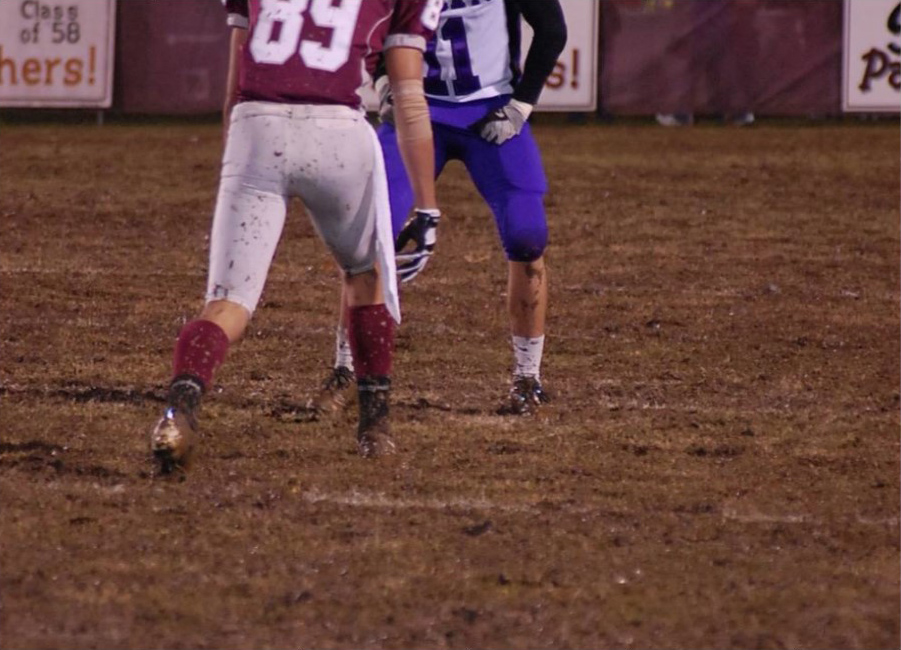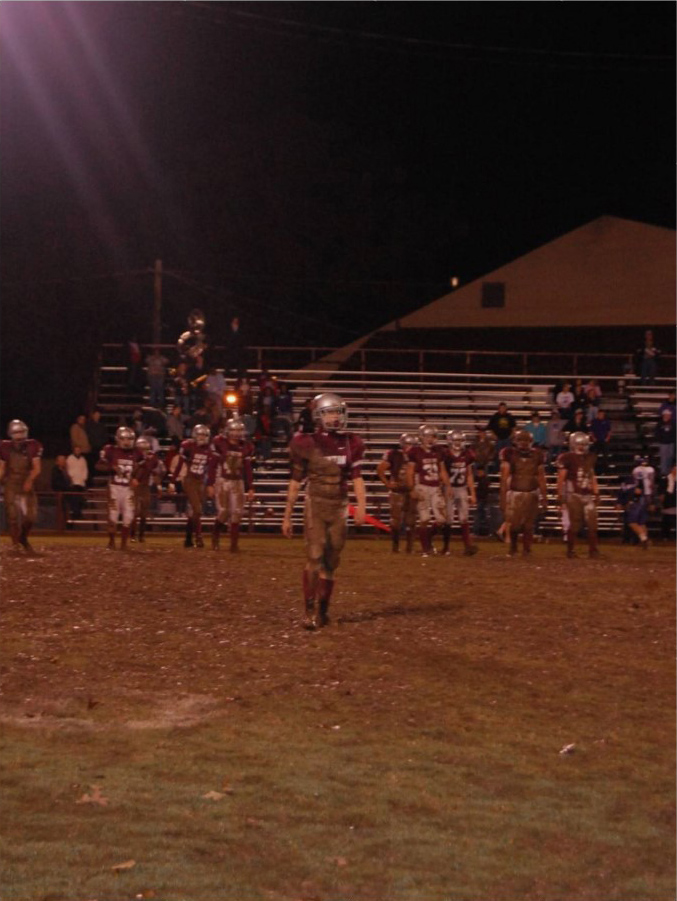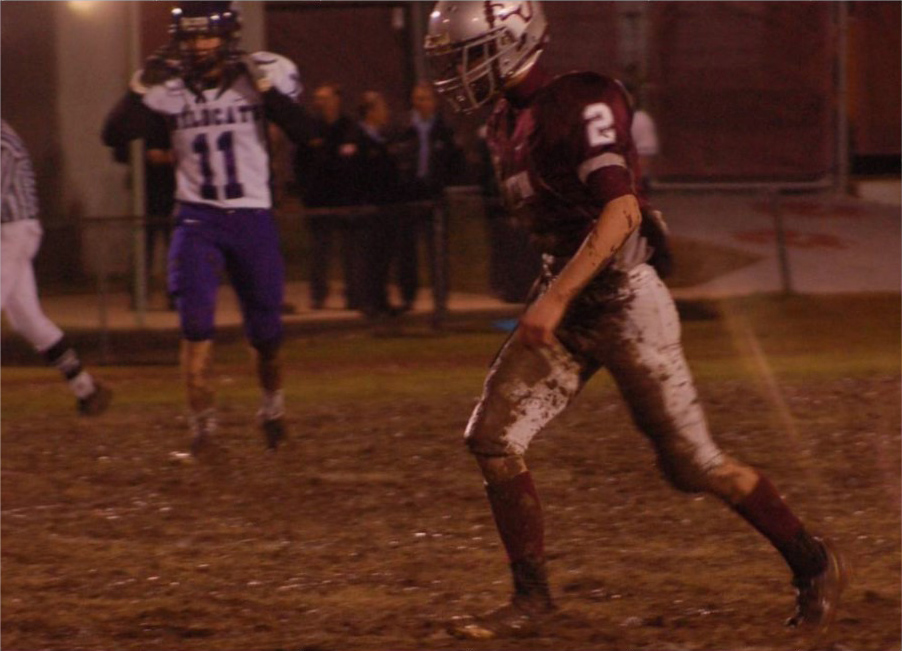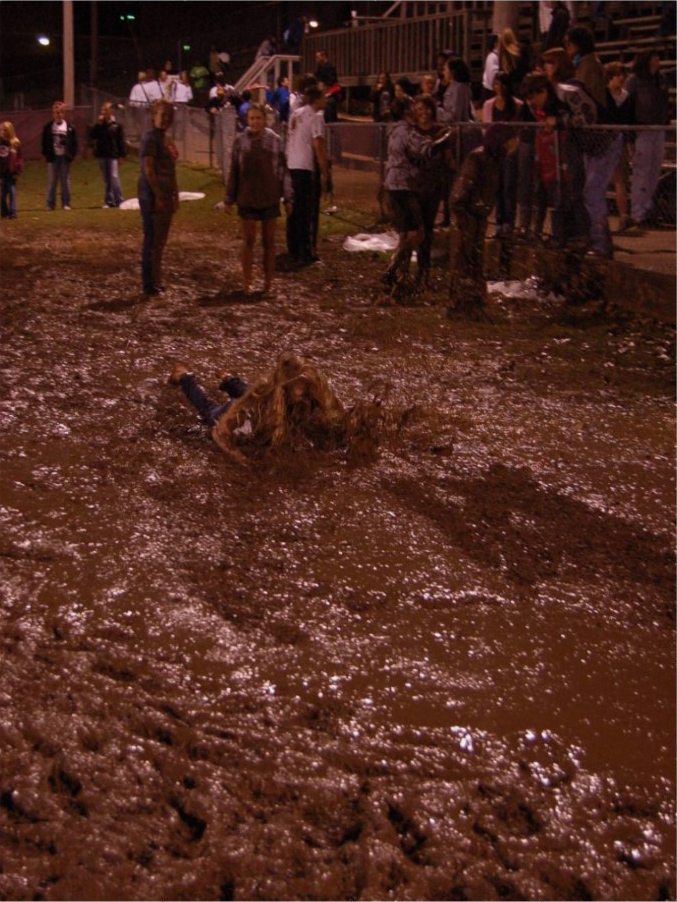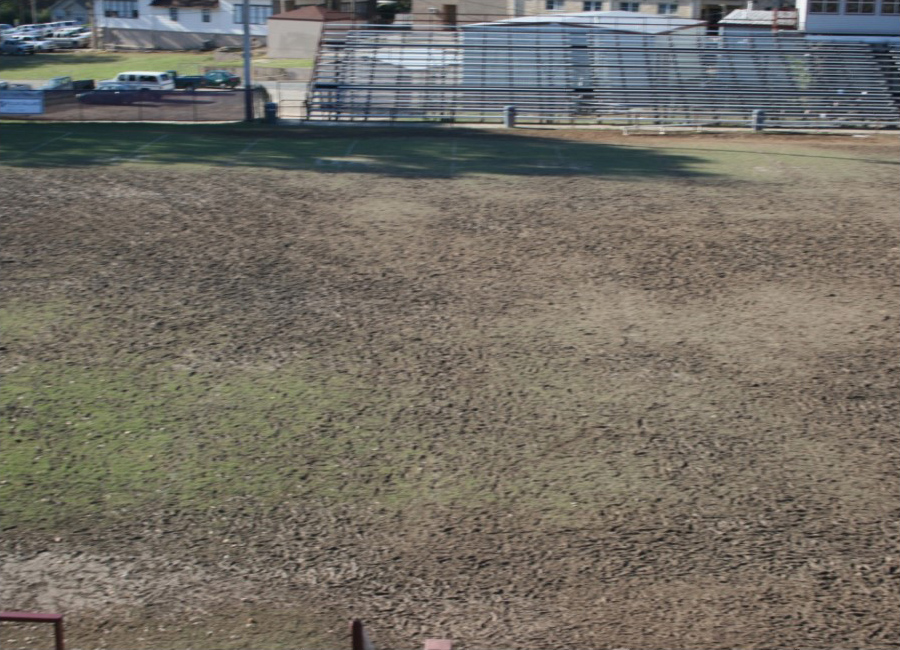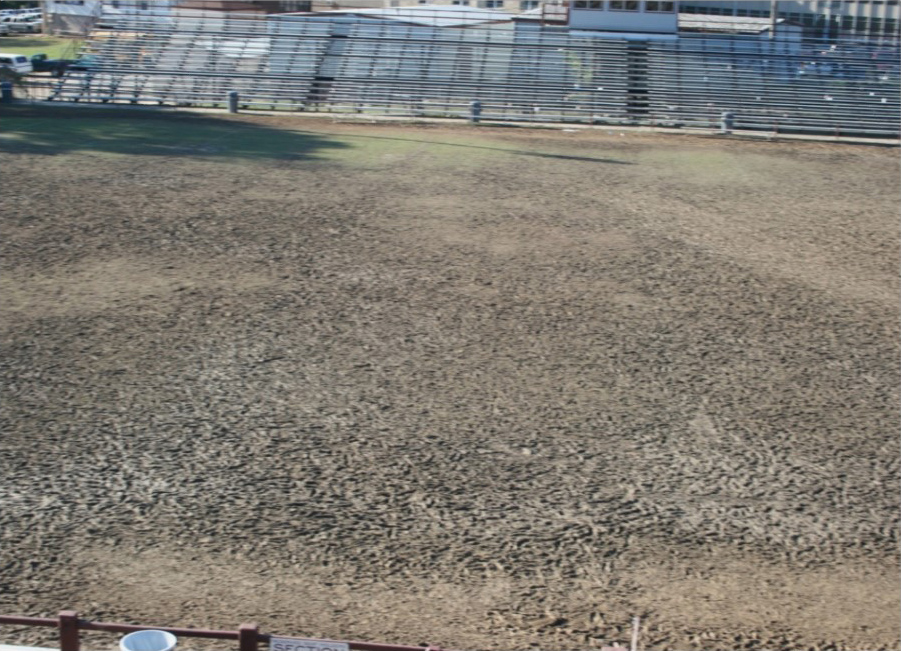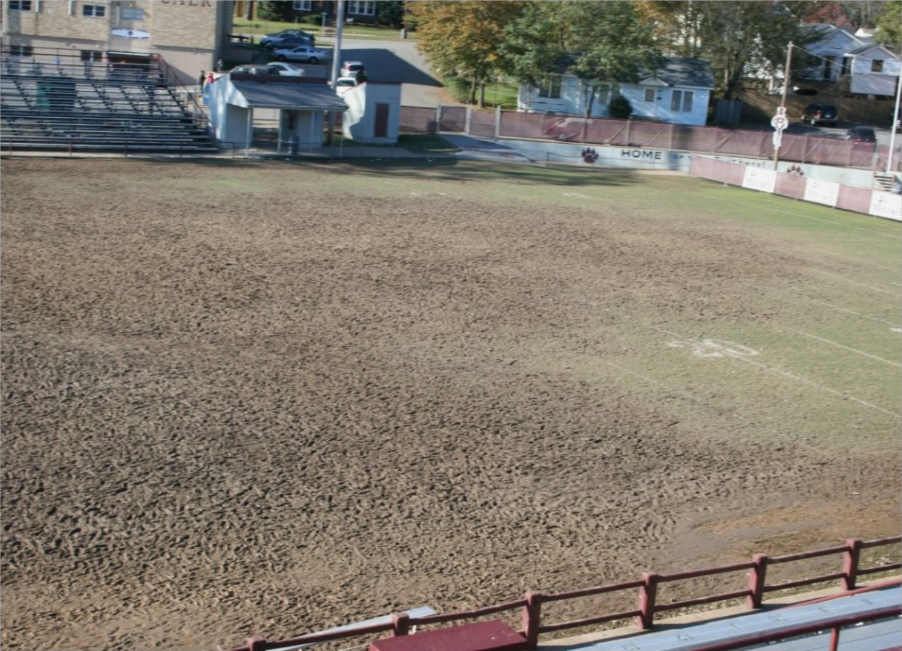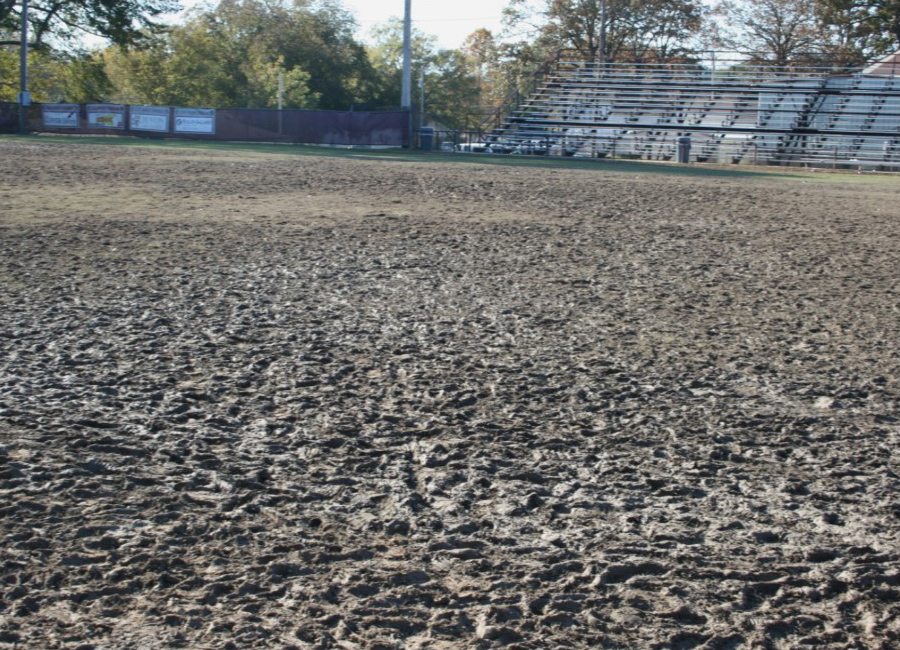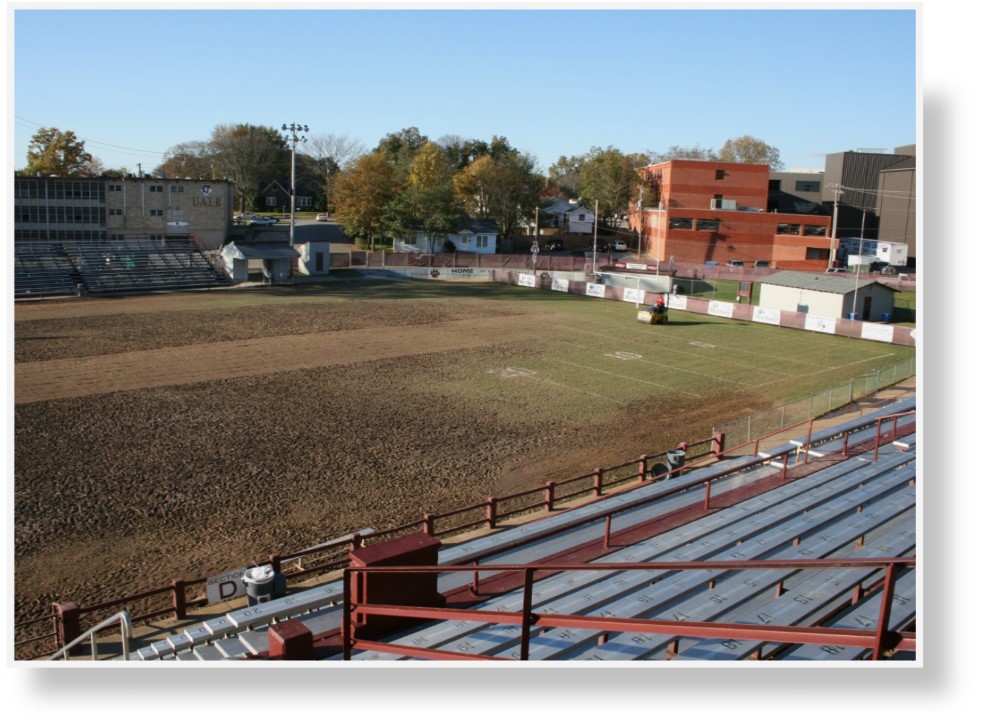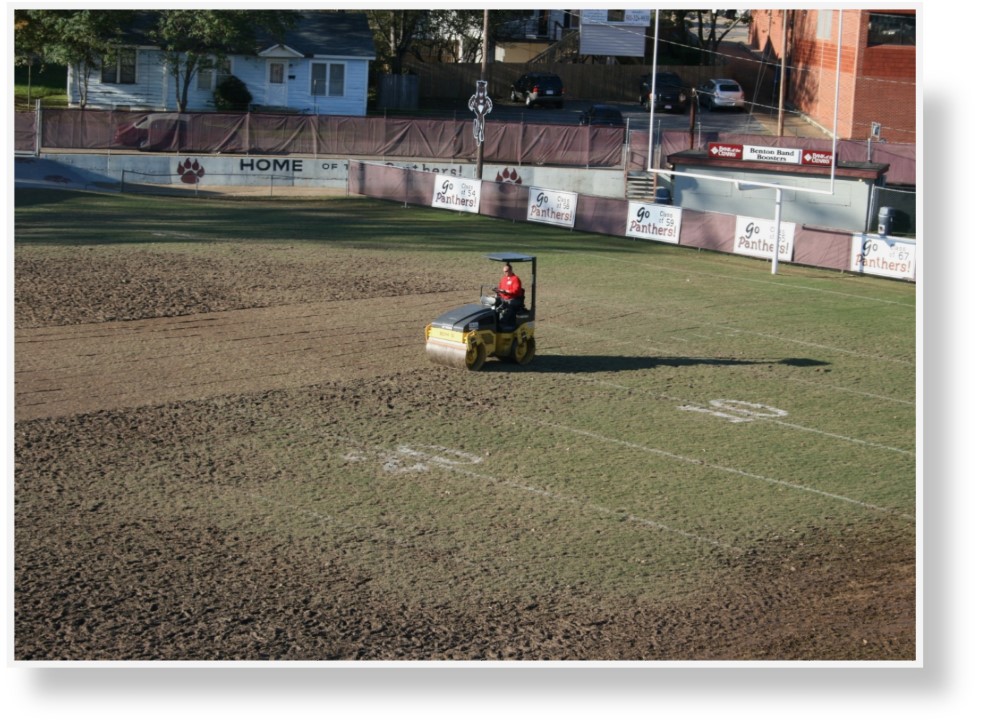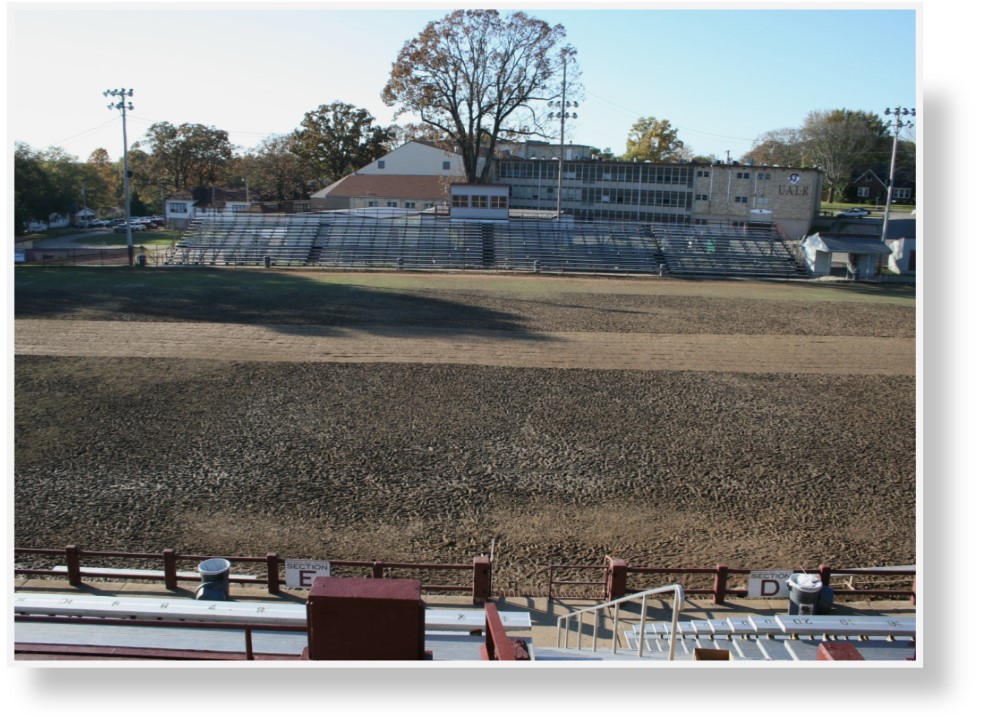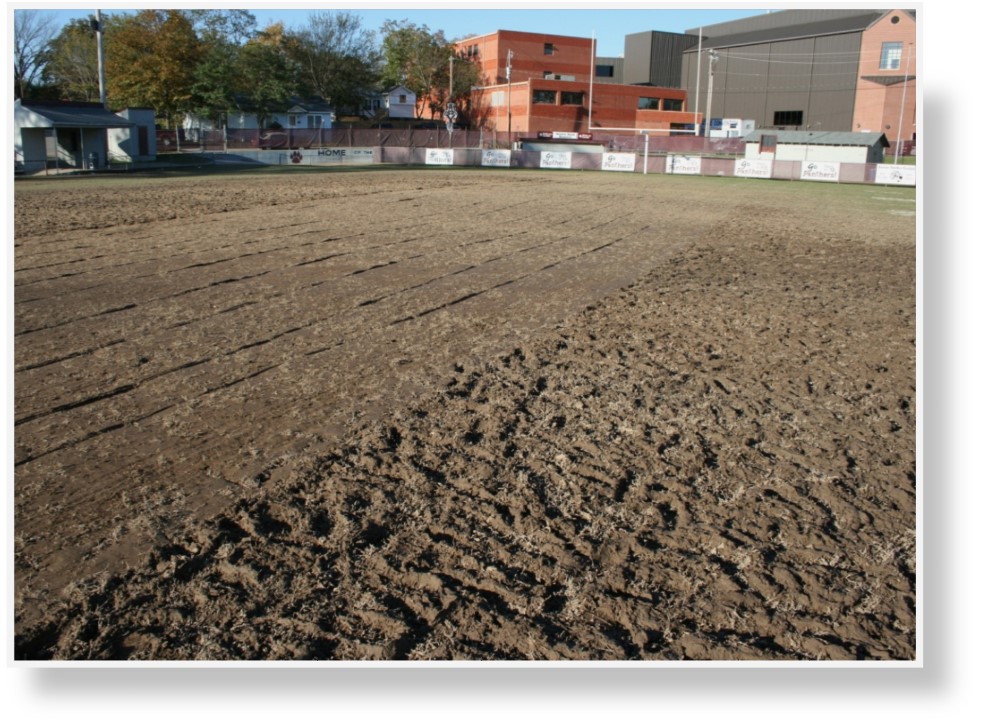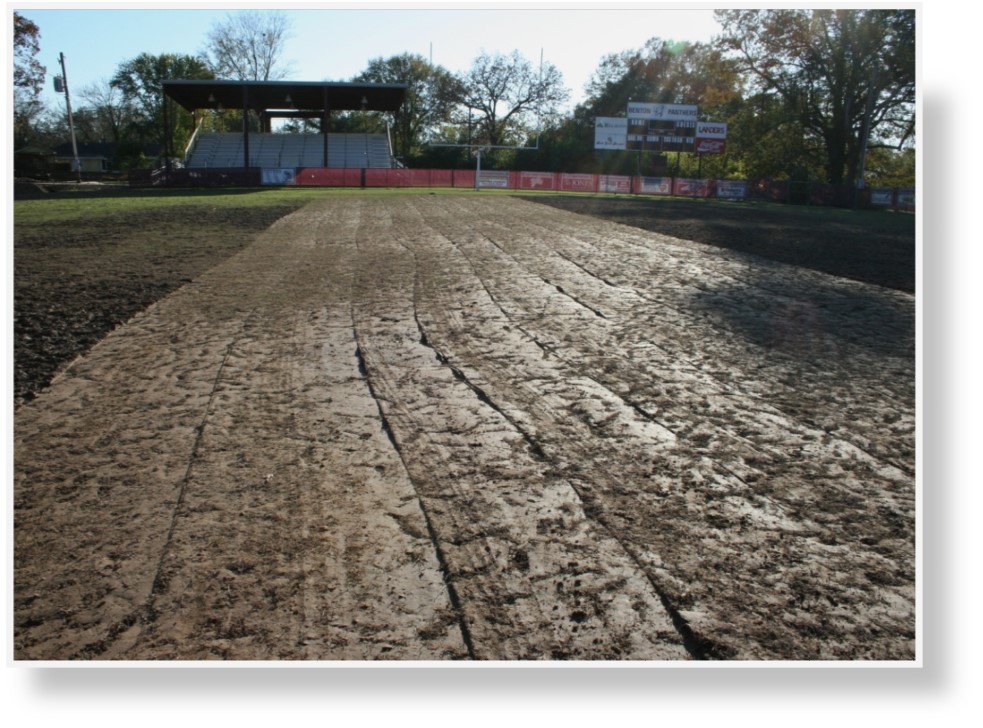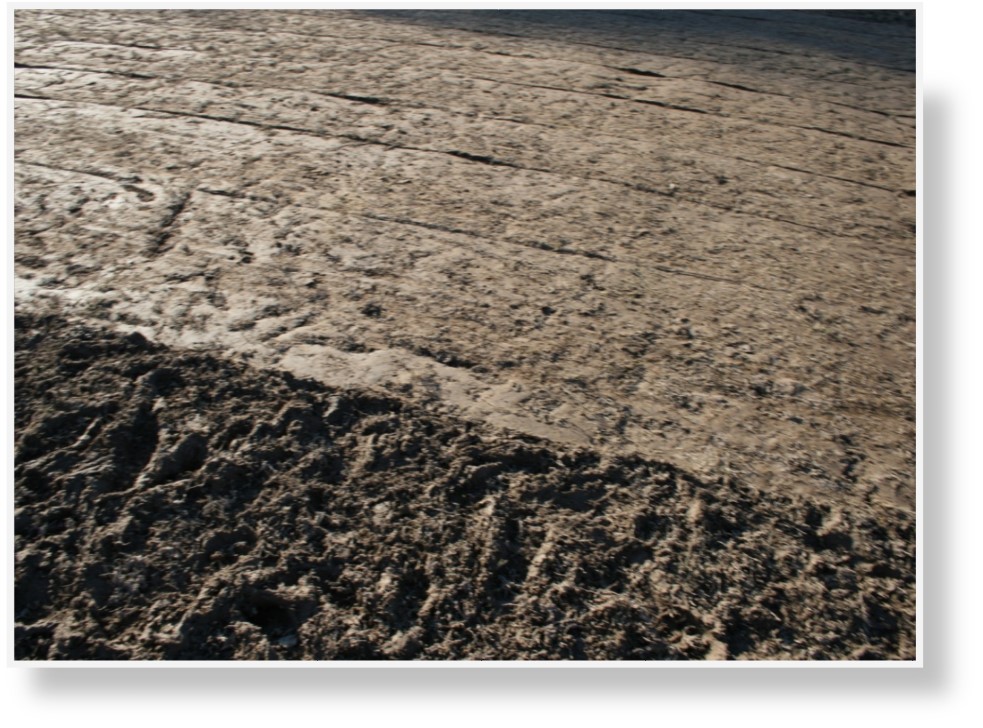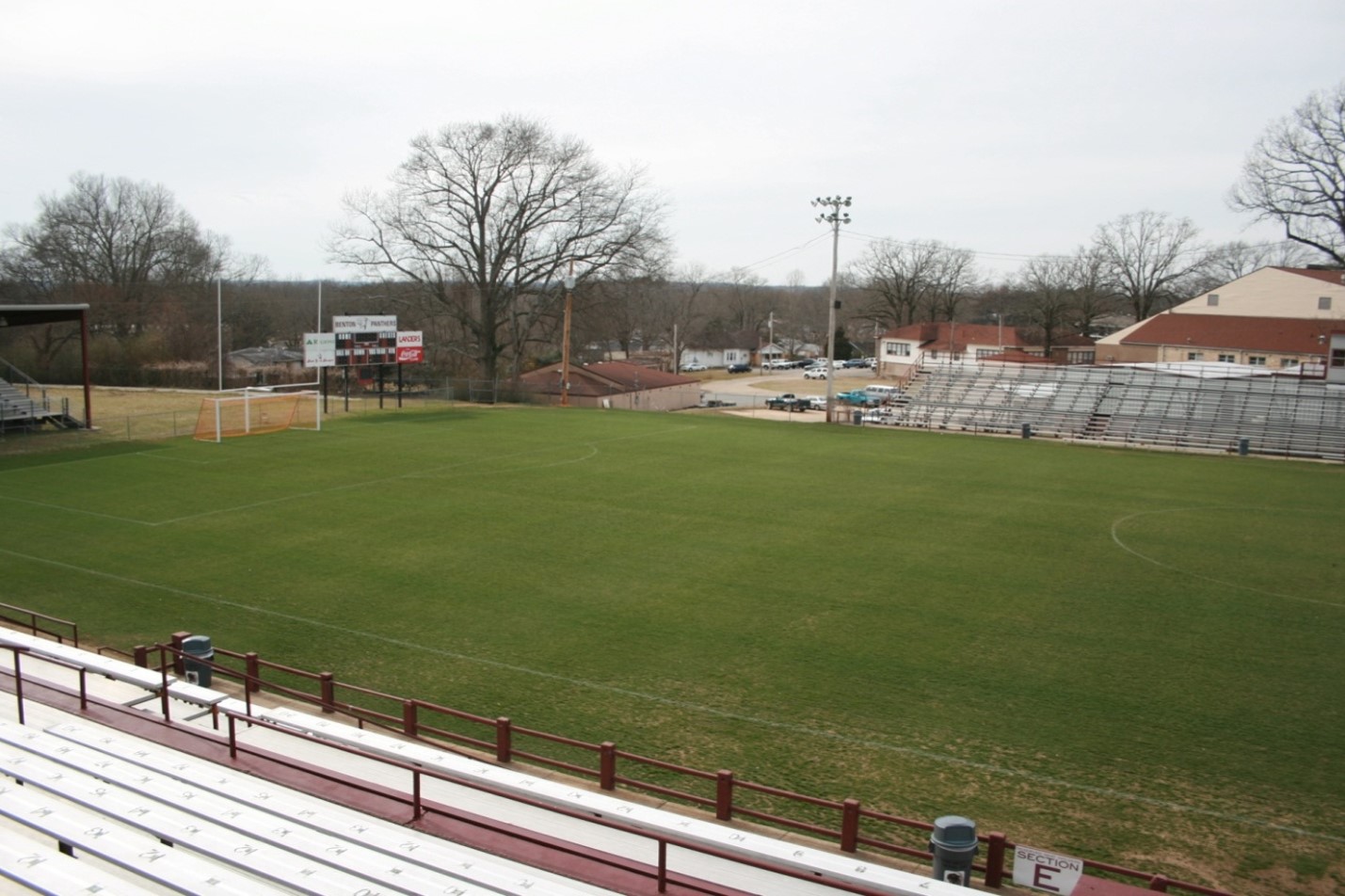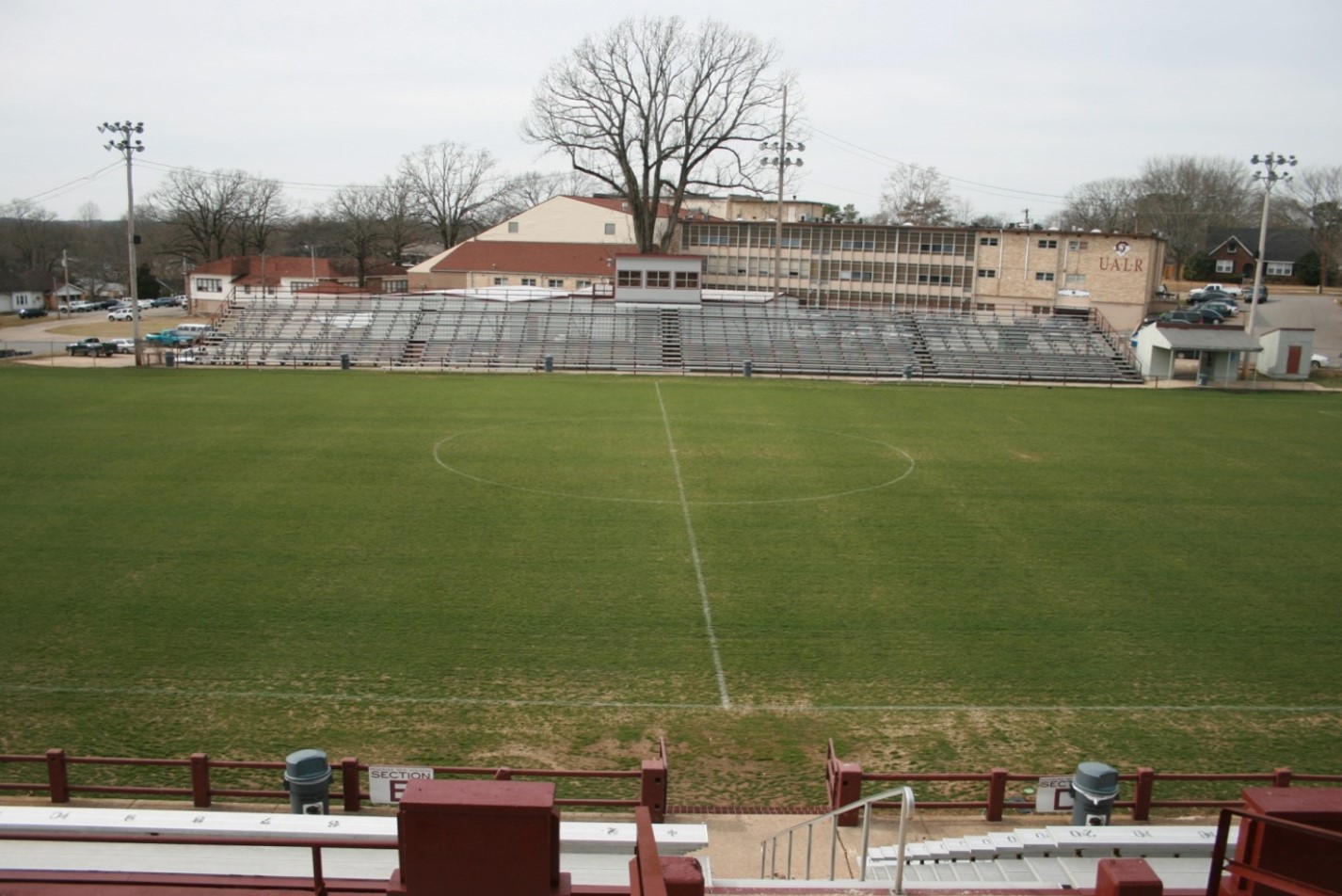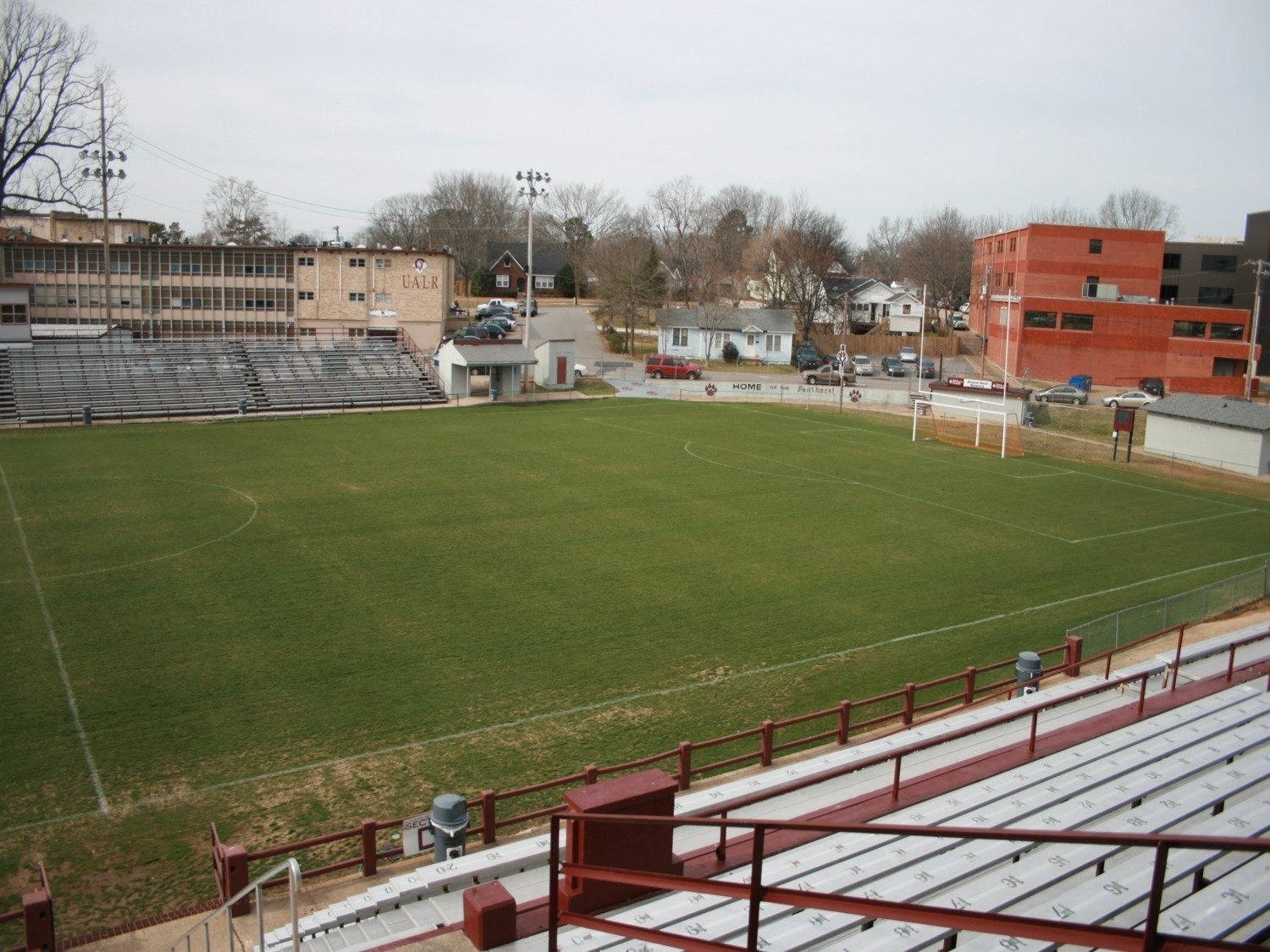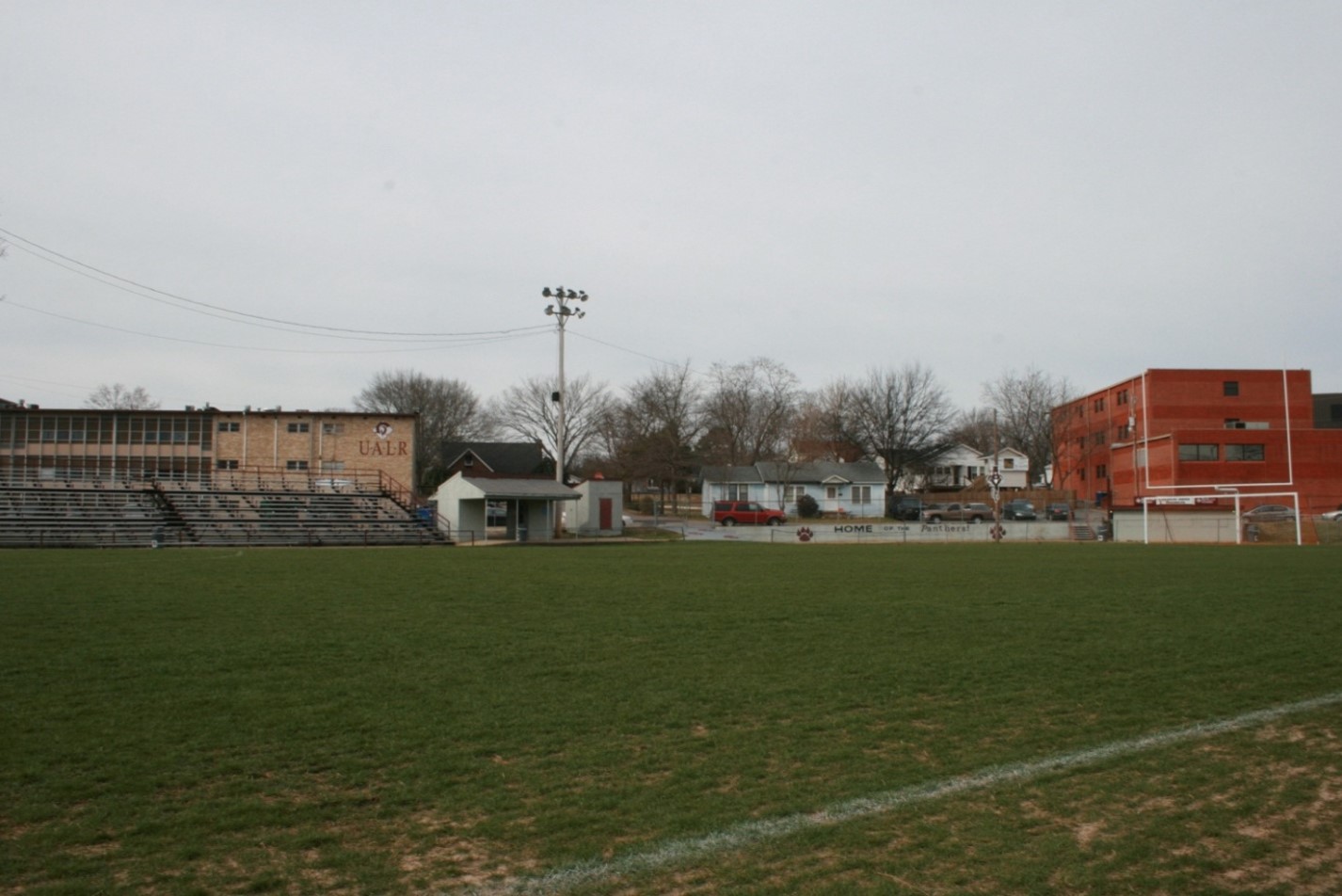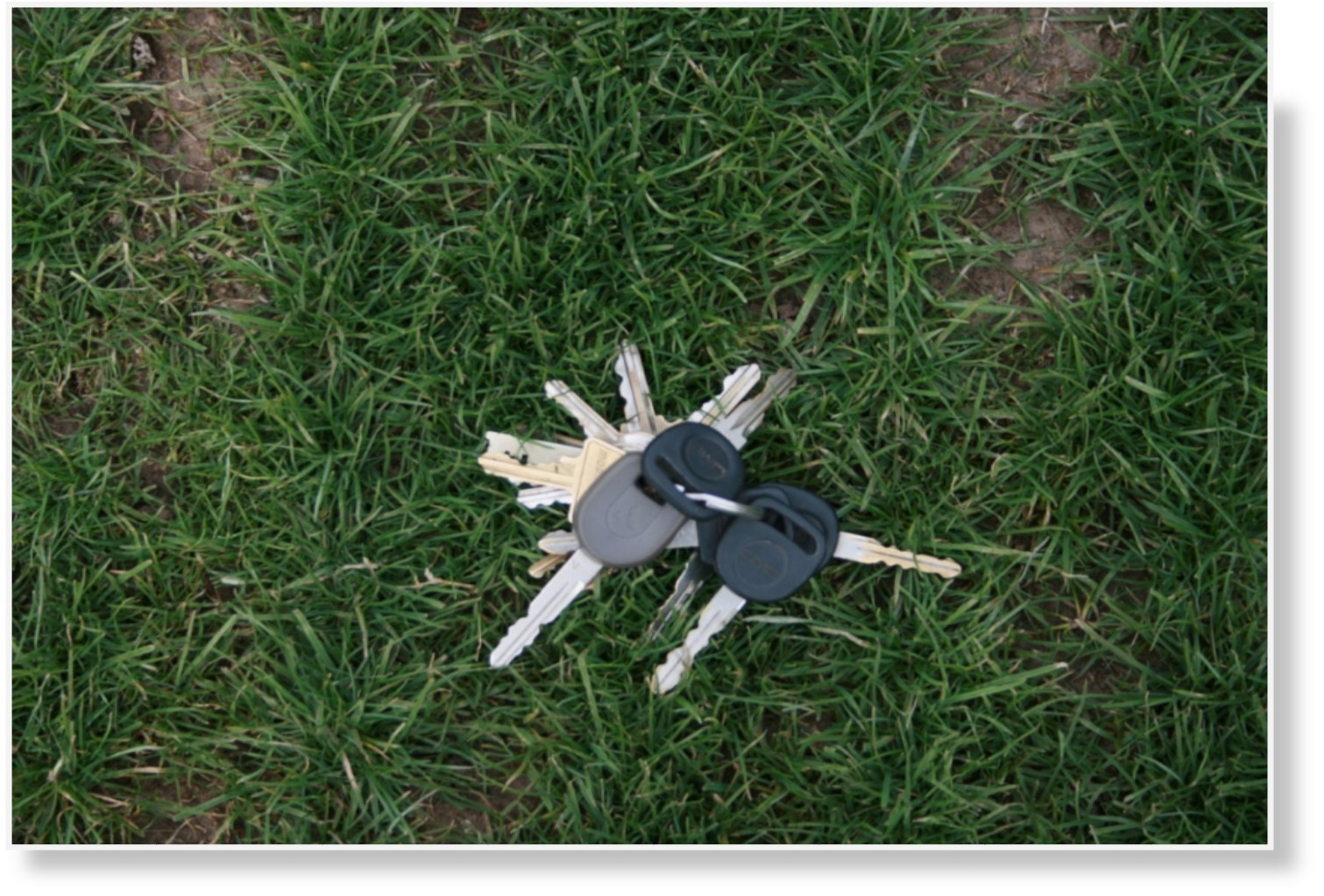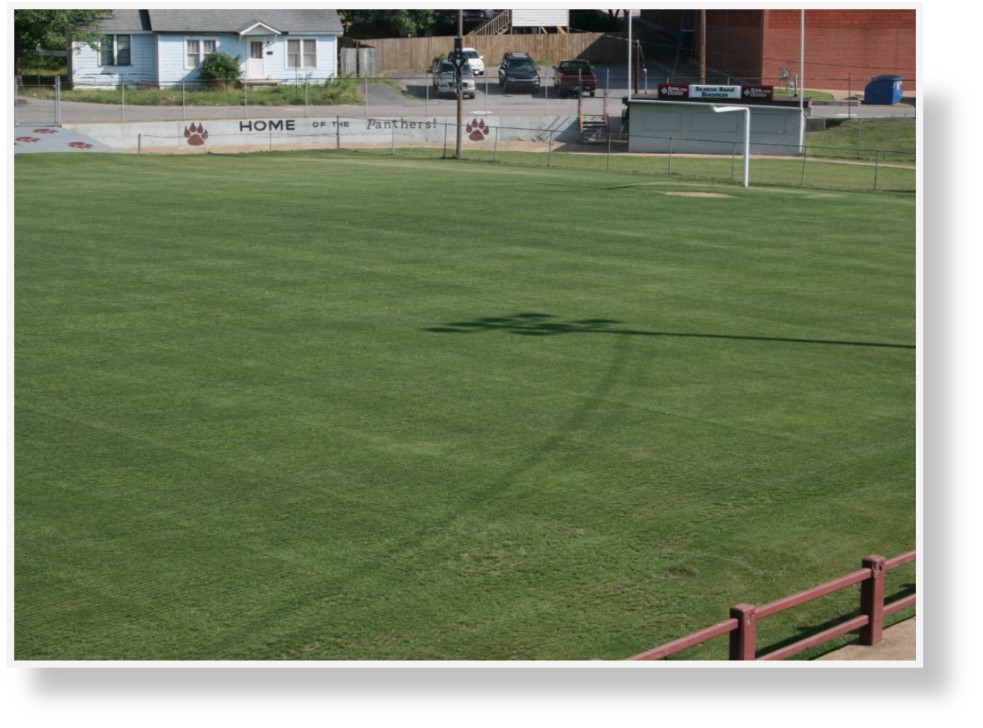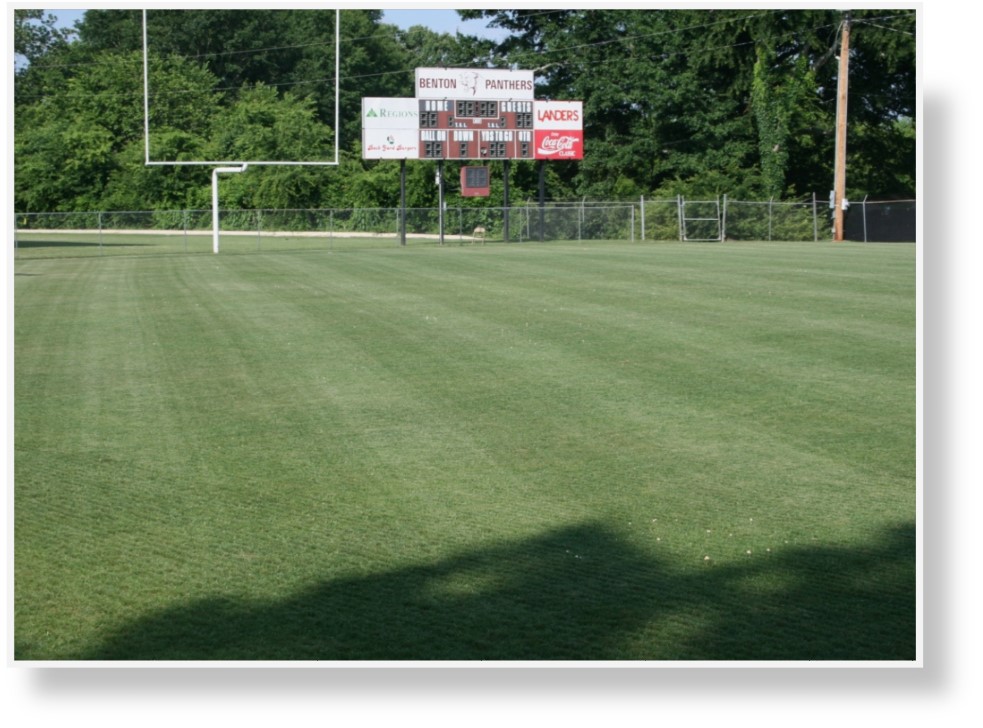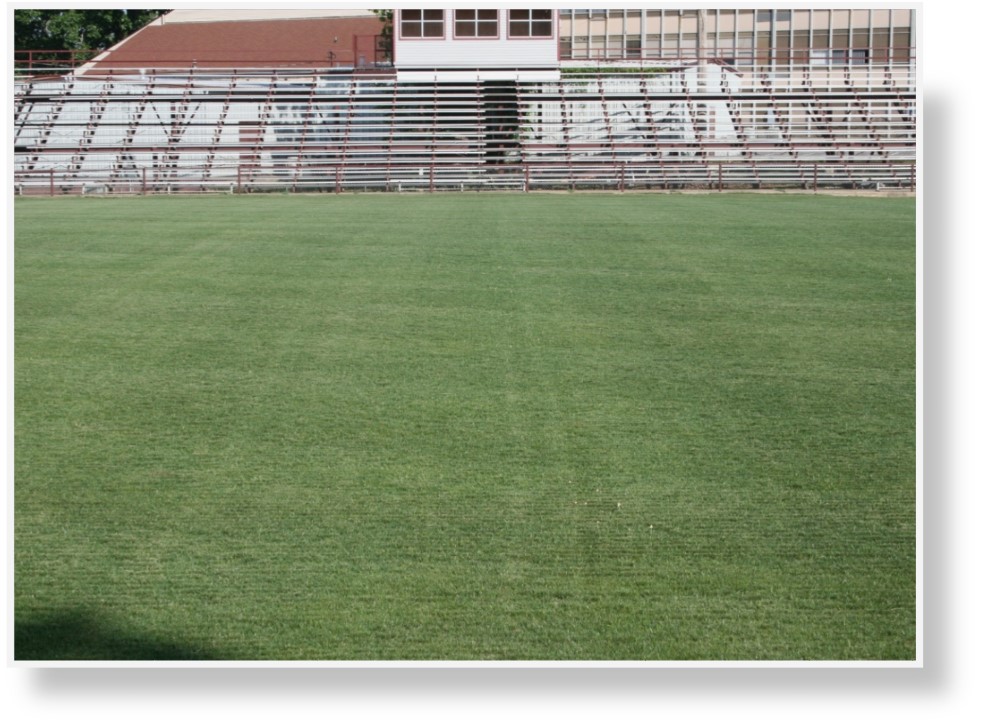From Mud to Marvelous
In the fall of 2009, Sanders Ground Essentials, Inc was contracted to come out and fix the disaster of what once was a great sports field. The C.W. Lewis Stadium in Benton, AR was built in 1934 and has been the first and only stadium for the Benton High School Panthers. The first game was played on September 21, 1934. Unfortunately the field was just shadow from its former days of glory due to some highly unfavorable conditions.
The Problem
In 2009, according to the National Weather Service, Benton had recieved nearly 81.79 inches of rainfall, the wettest year since 1882, and the wettest year on record.
The NWS also reported that in 2009:
- September - Had above normal rainfall.
- October - Was the wettest October on record, and saw two of the top four wettest days ever recorded during the month of October.
- October - Saw the fewest 80 degree days ever recorded and average daily high temperature of only 67.8 degrees.
Recipe for Disaster
What do you get when you mix the wettest year on record during the wettest month with 30 teams playing 15 games in 28 days?
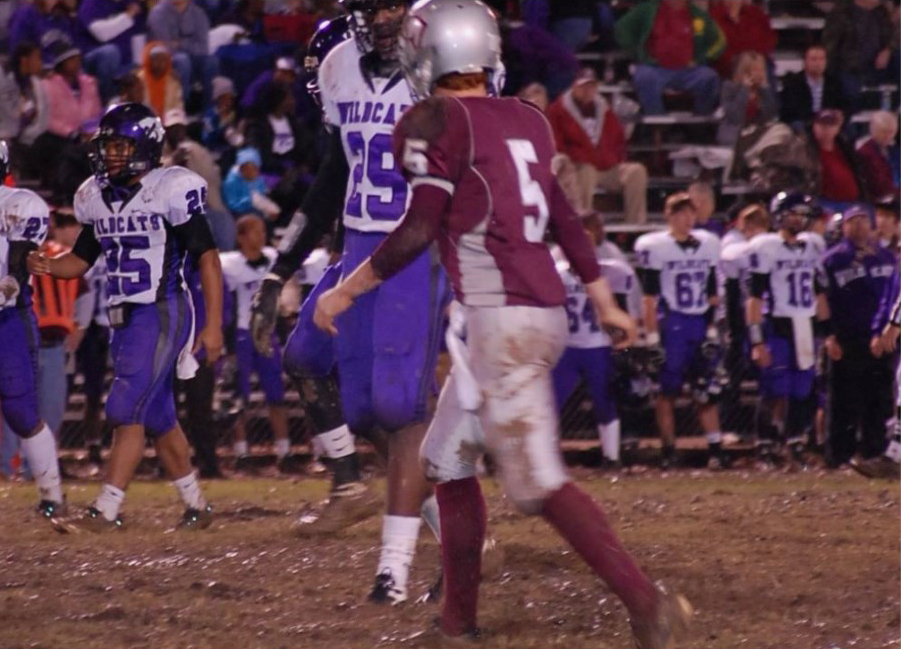
The Aftermath
Monday Morning on November 2, 2009, the field was in ruins.
- Field was unplayable.
- Major Turf Damage.
- Soccer preseason starts in a few weeks.
- Soccer first game in February.

The Plan
We came in and formulated a plan to quickly and effectively rebuild the turf and restore the field to excellent condition.
Step 1: Level the Field
Using a double drum roller, Kyle worked the field over and over until it had a smooth, even grade.
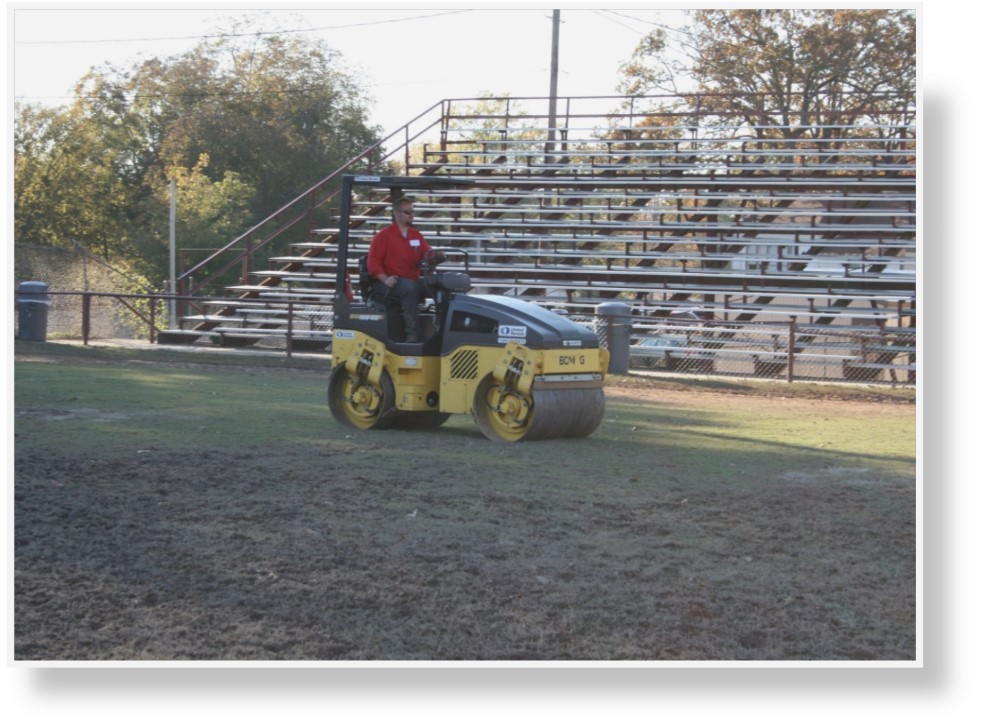
Step 2: Prepare for Seed
Using a spike aerator, we conditioned the soil so as to improve the ability for seeds to take root and grow.
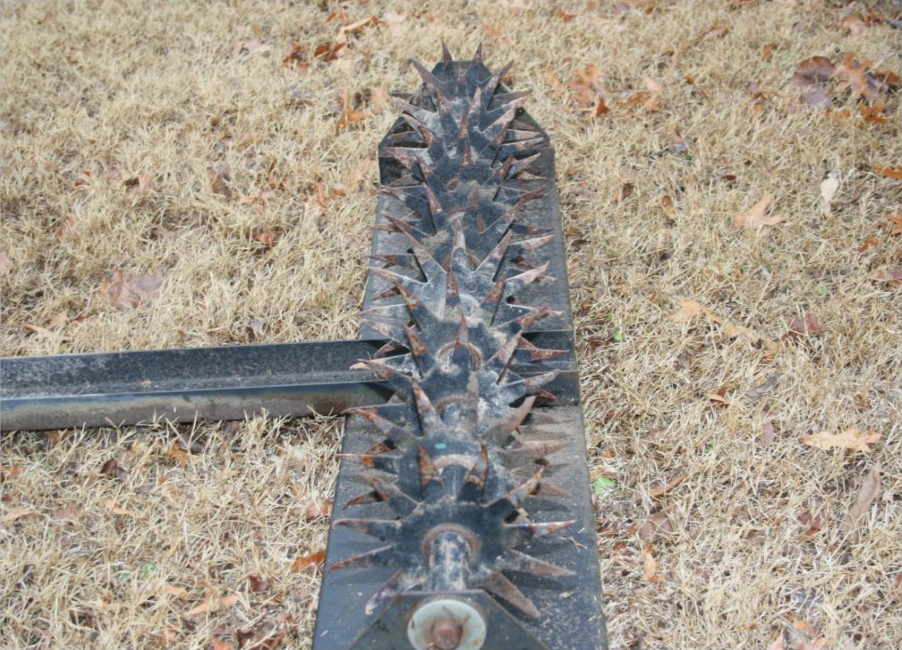
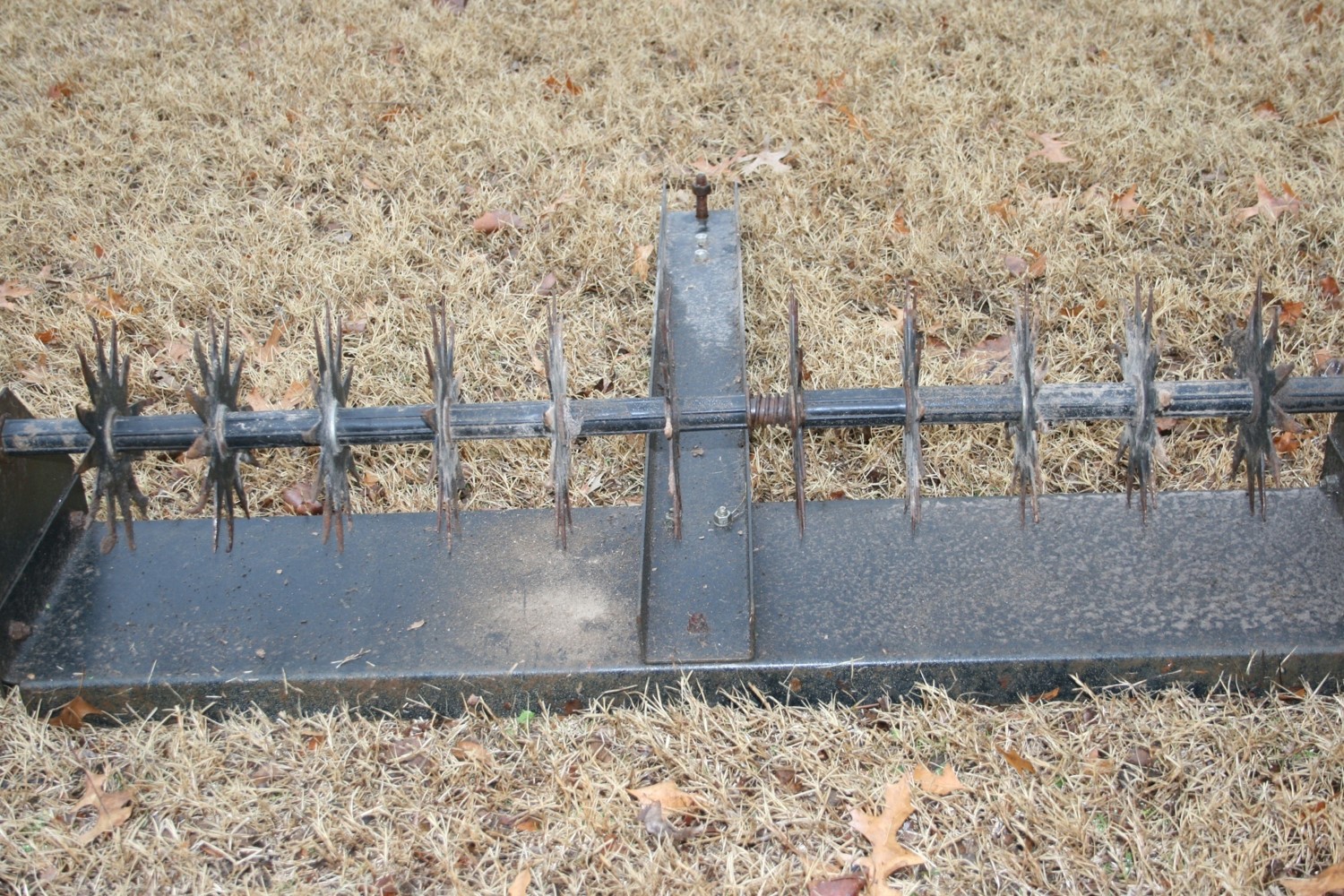
Step 3: Spreading Seed
We chose Perennial Ryegrass seed for the job. We spread about 600 lbs of grass seed on the turf, which by our estimates was about 156,000,000 seeds (yes, 156 million).
Step 4: Cover & Irrigate
After seeding, we covered the seed using a mat drag from the baseball field pulled behind a four wheeler. We also created a plan to irrigate the seeds multiple times during the day on a regular schedule.
About 10 days later, we had already started to see the seed germinate and peek through the turf.
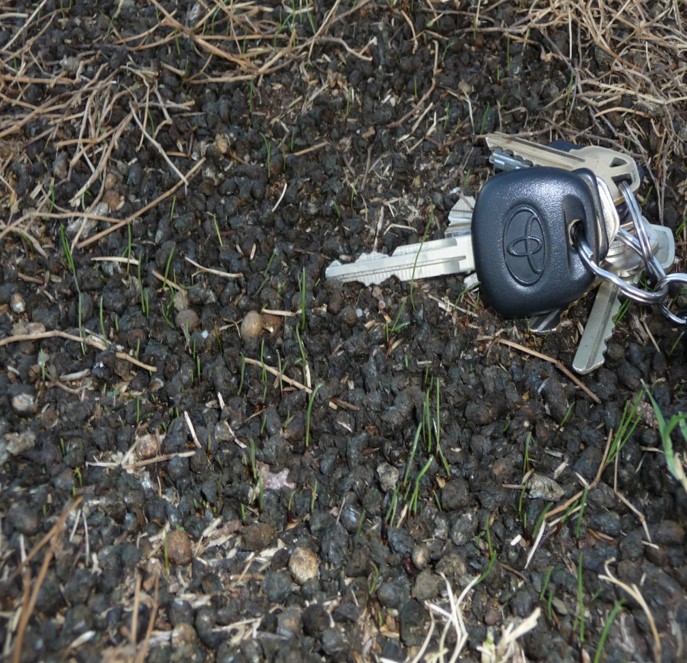

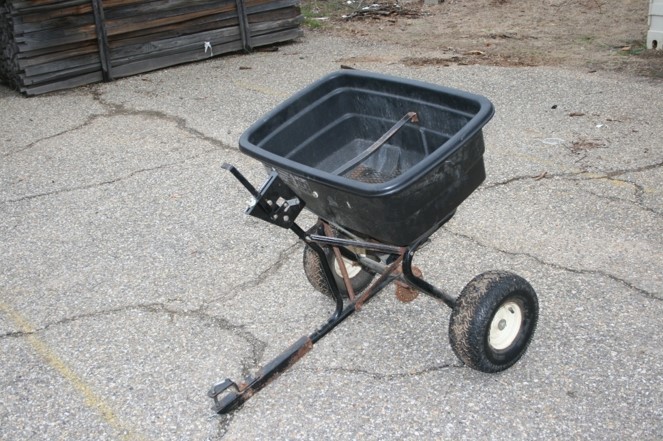
Step 5: Fertlizize
Once grass was established, we applied fertilizer two weeks after germination on November 30, 2009. We then applied another round about two weeks after that.
Signs of Change
In January 2010, just 2 months later, we were starting to see some dramatic changes.

Soccer Ready
We continued our fertilizer schedule throughout the months. During the season, the grass continued to grow and flourish. The fertilizer continued to provide the much needed nutrients to the turf that it needed.
March 19, 2010
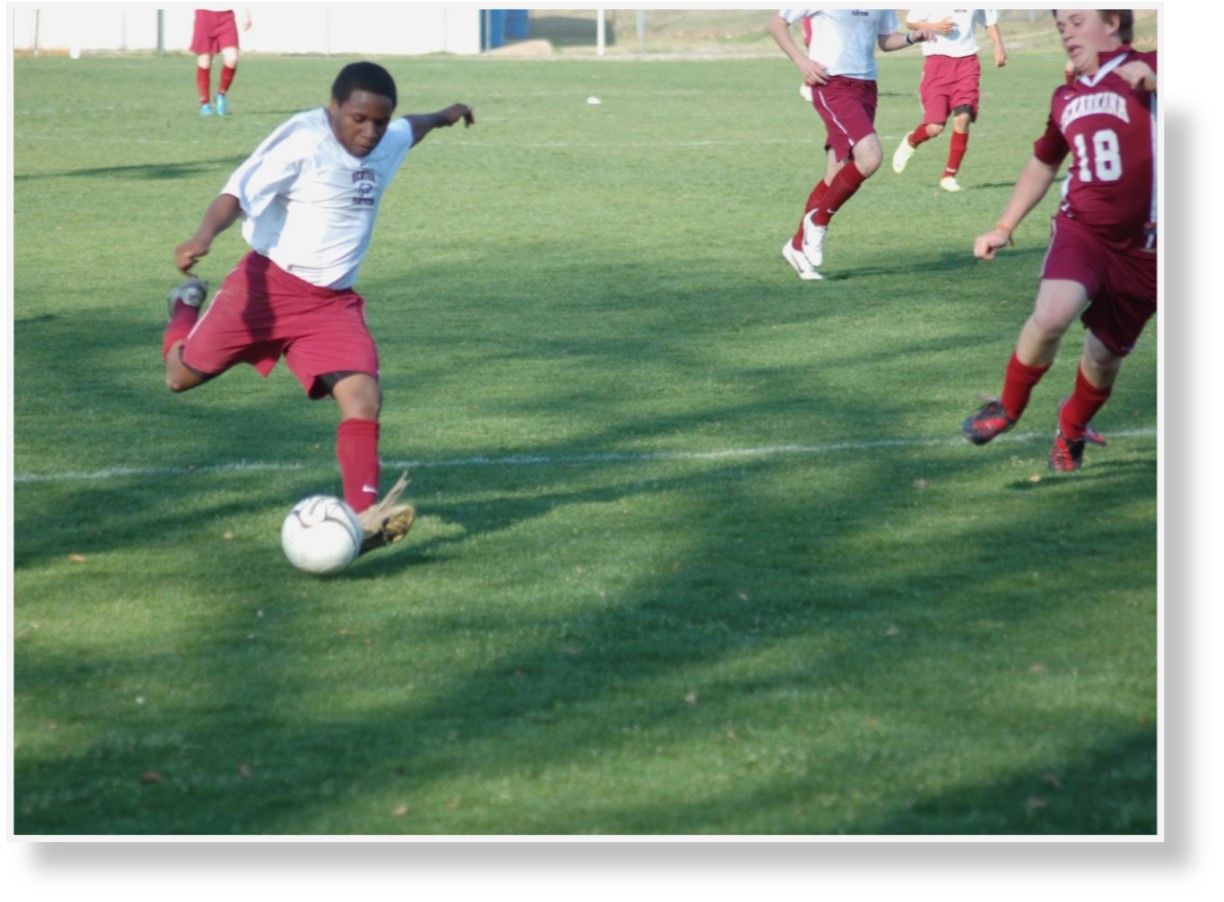
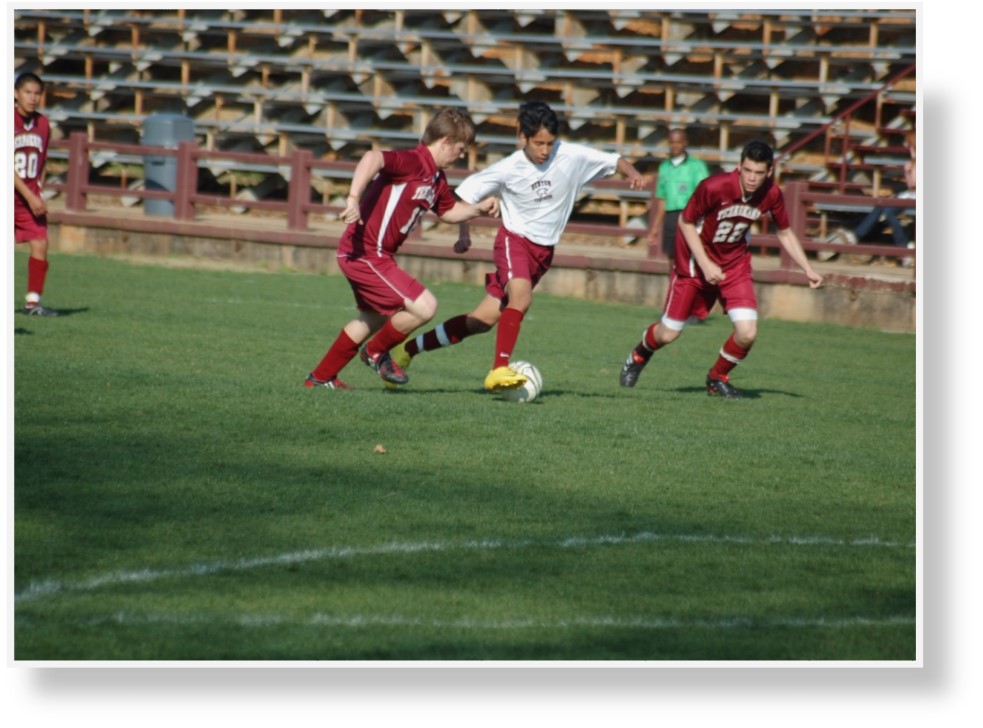
April 6, 2010
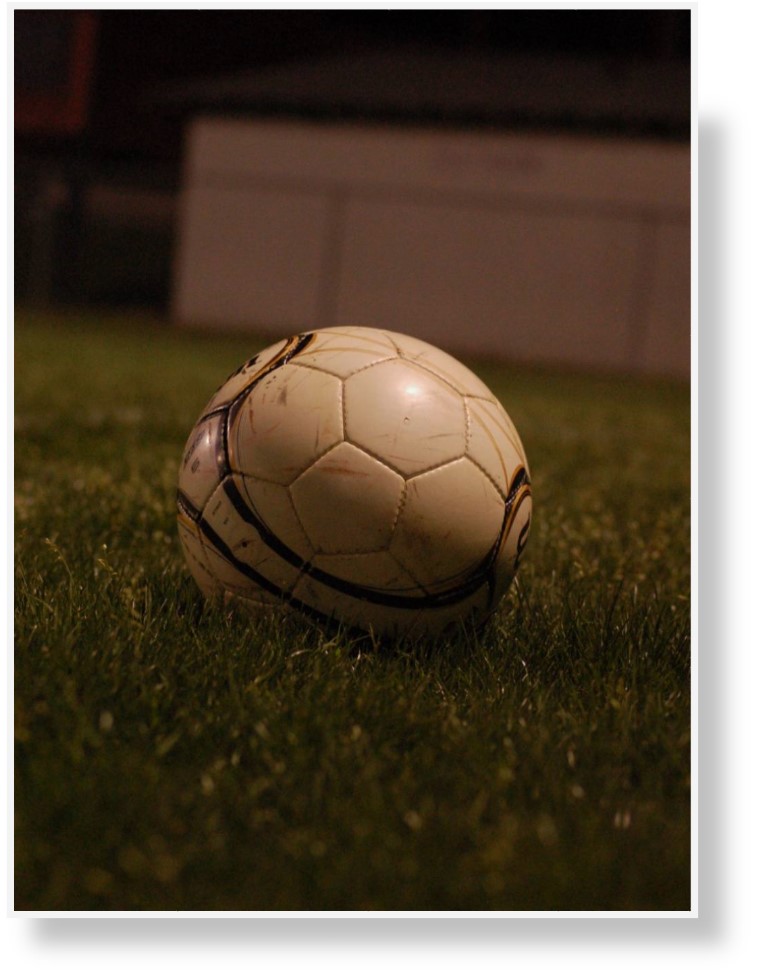
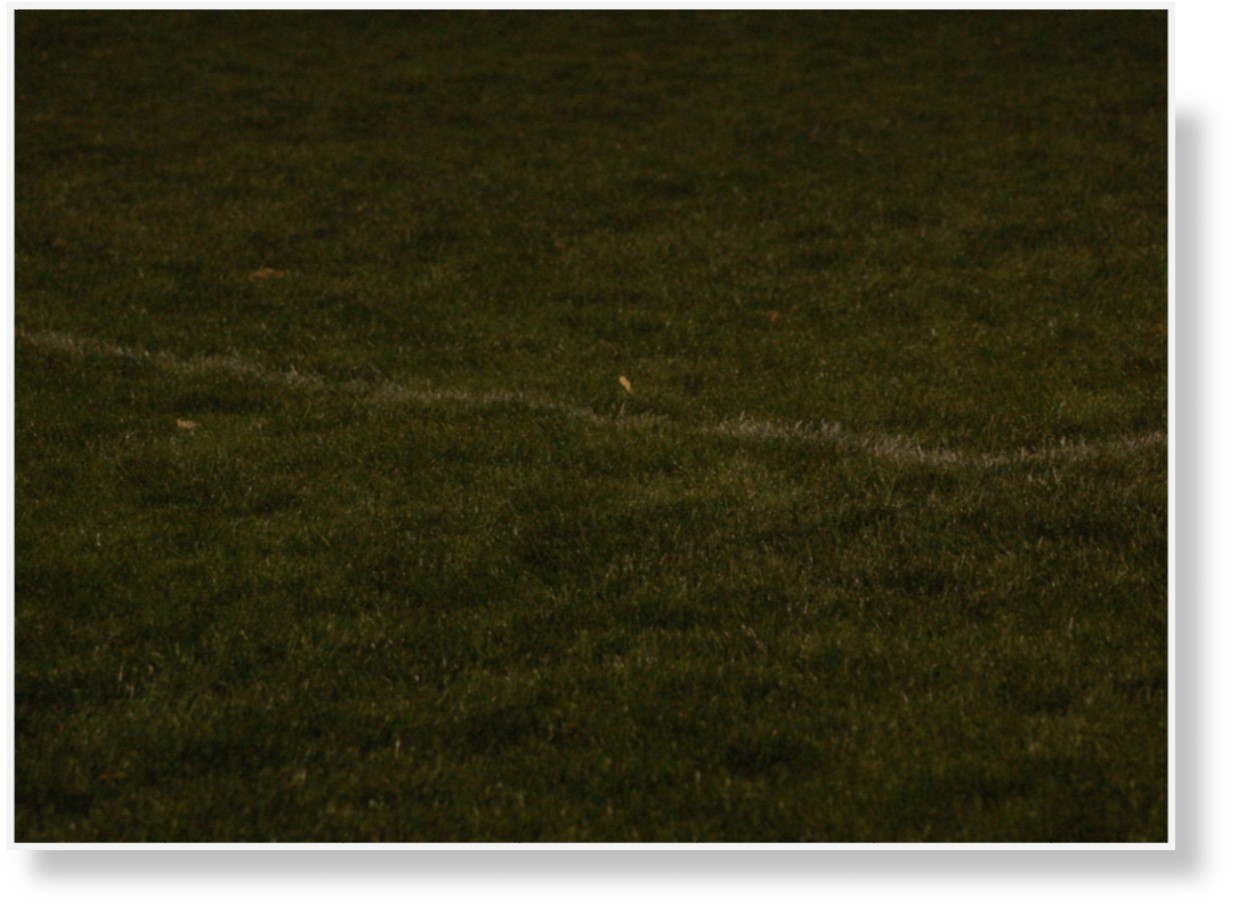
May 2010
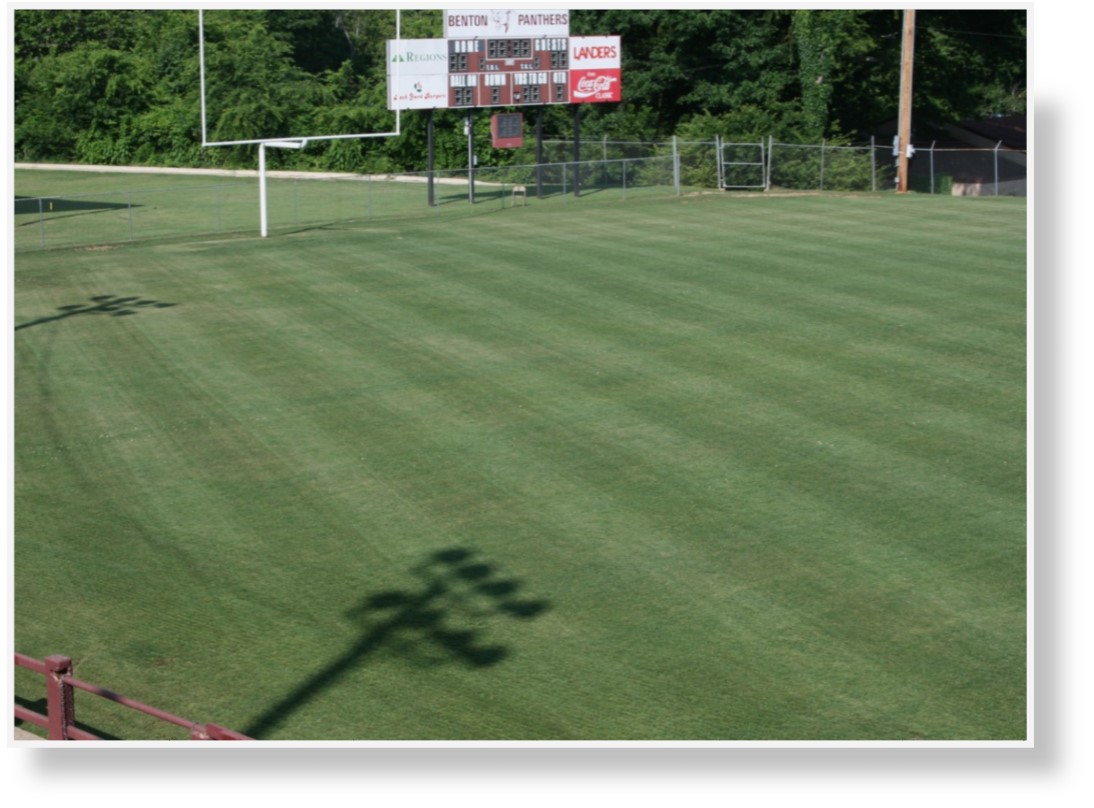
Soccer is out, Summer is Coming
With the end of the soccer season, we had to prepare the field for the upcoming summer and fall seasons. Which meant we needed to get rid of the Rye grass and plant Bermuda grass.
Step 1: Kill the Rye Grass
We sprayed a chemical to the turf that directly kills the over seeded rye grass. We waited about two weeks and then scalped the field and bagged the clippings.
Step 2: Preparing for Seed
Using a tractor and a pull-behind aerator, along with walk-behind aerators, we conditioned the turf to accept the new seed.
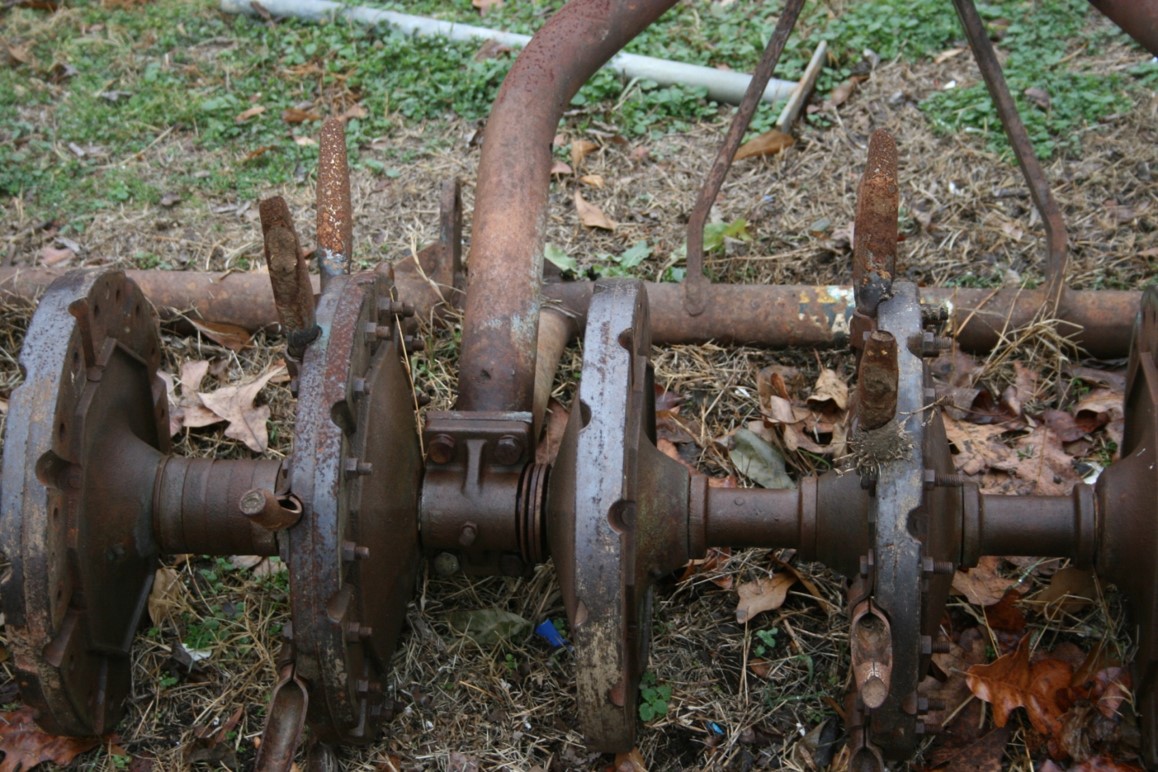
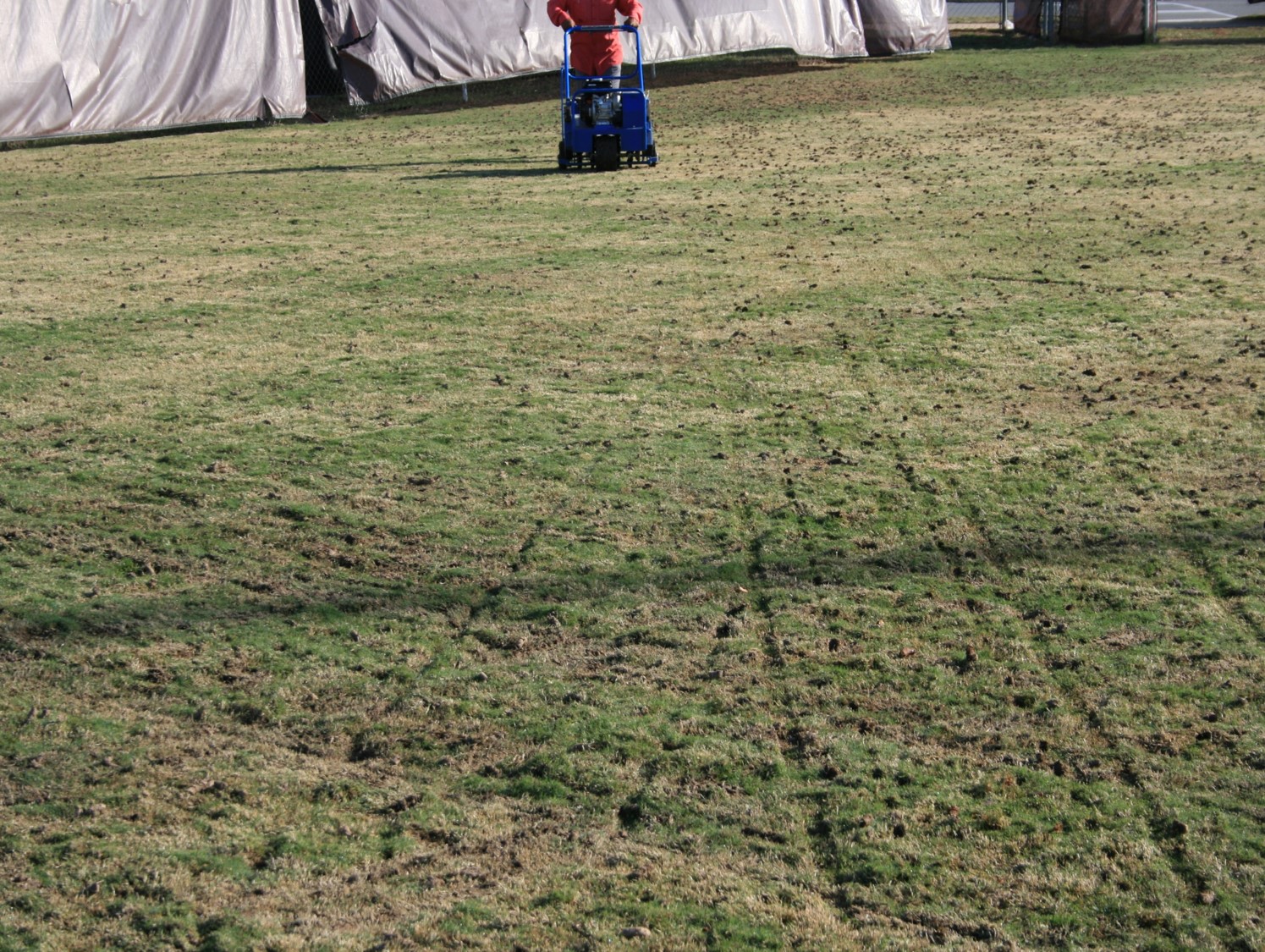
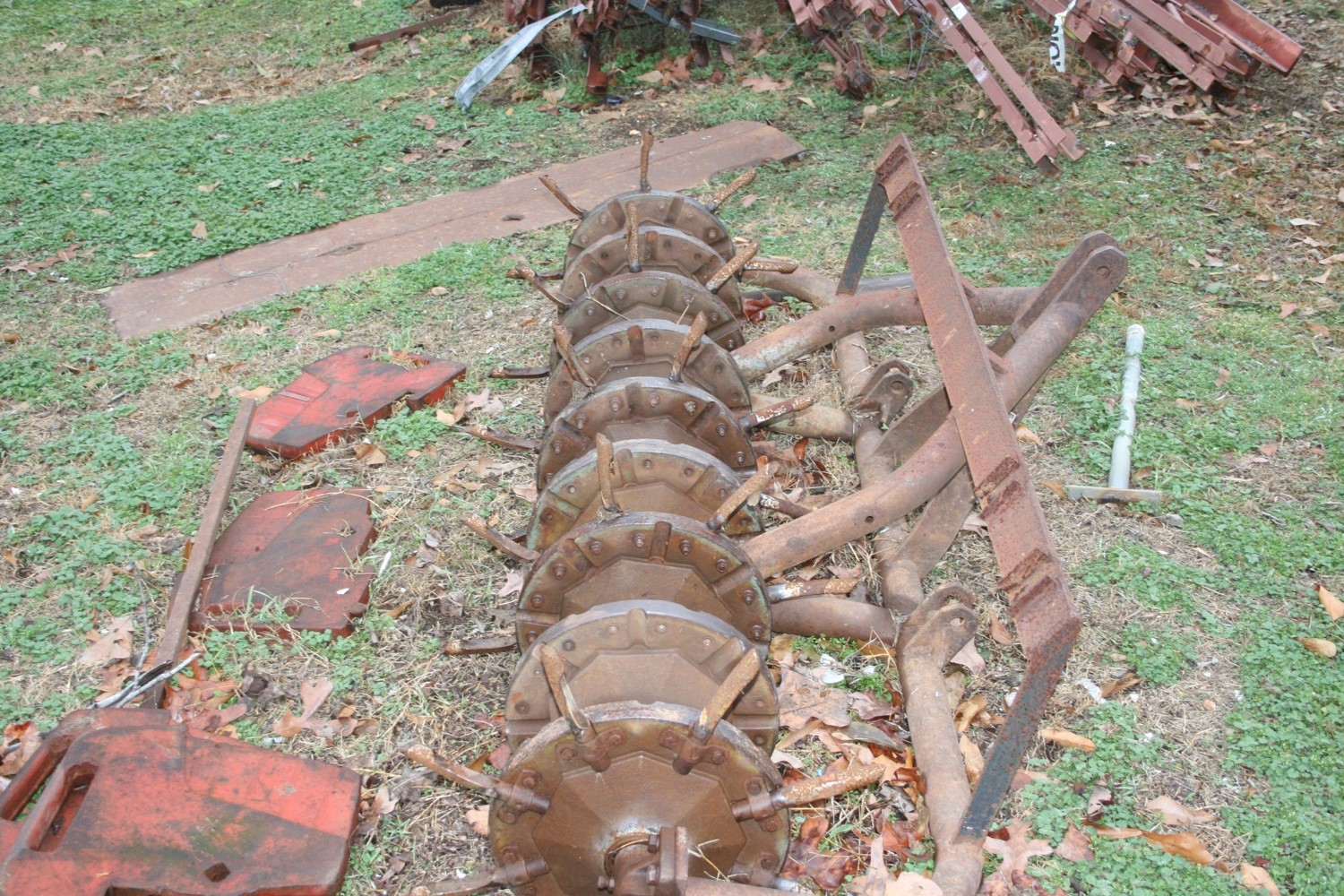
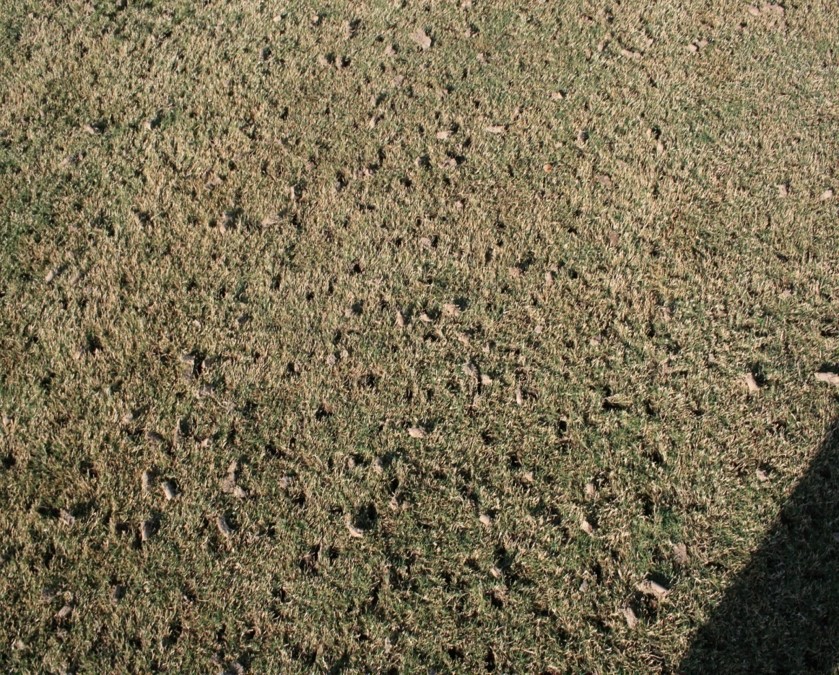
Step 3: Seed
We spread the Bermuda seed with a fertilizer mixture over the field.
Step 4: Cover & Irrigate
We also covered the seed and irrigated it, just like we had done previously. Sure enough, 2 weeks post planting, Bermuda seedlings were sprouting through the turf.
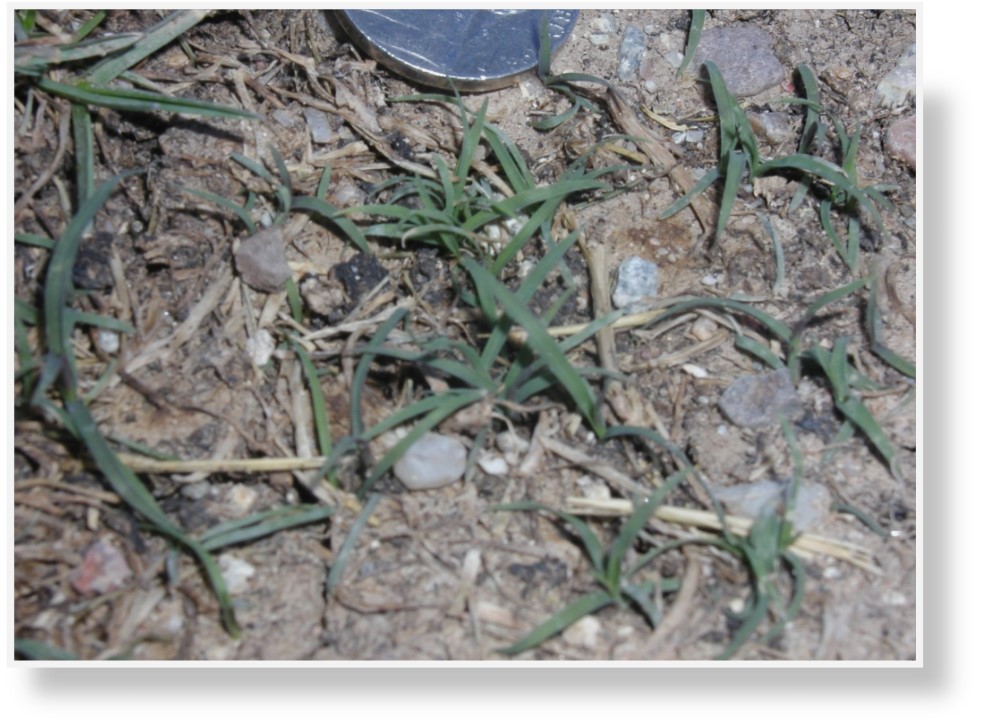
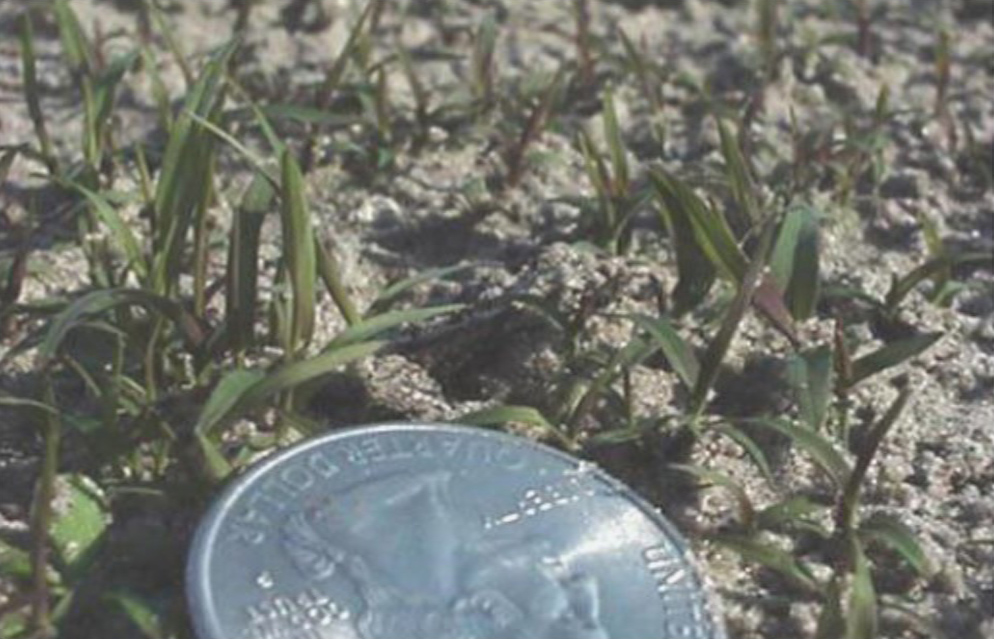
Step 5: Fertilize
Once the grass was established, we applied fertilizer two weeks after germination, and then came back in another two weeks and applied it again. We continued a fertilizing regiment throughout the months. Through the summer heat, the football season, and many other sports and recreational activities, the grass continued to grow strong and true.
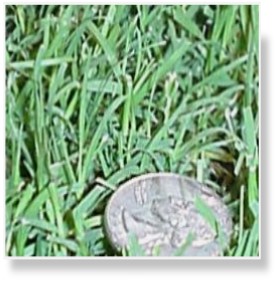
Mission Success
The final result? Have a look.
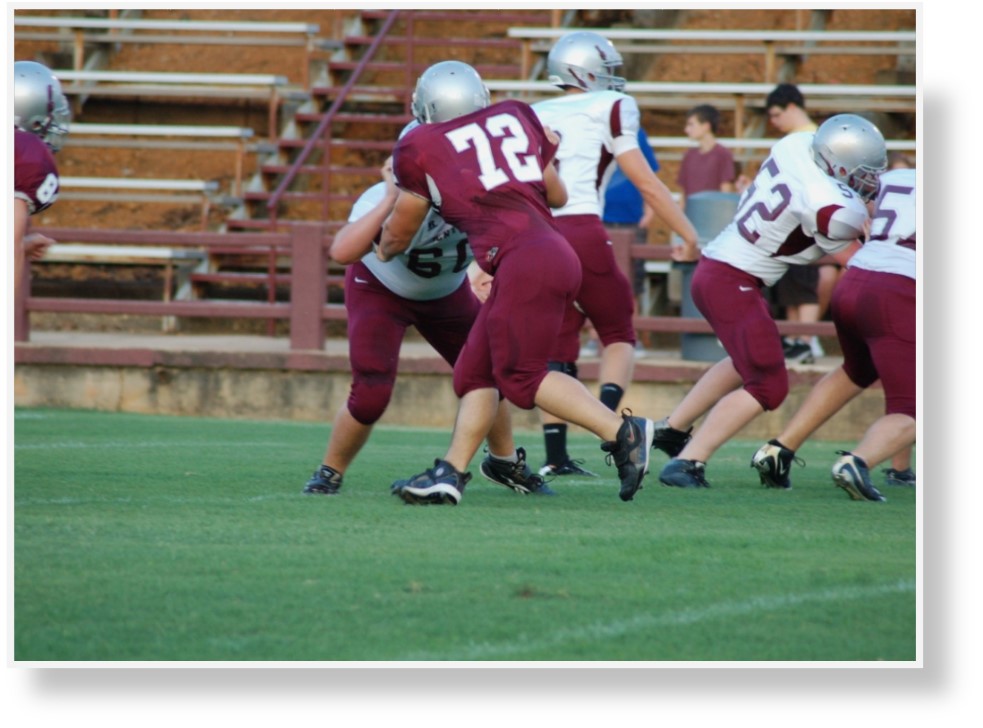
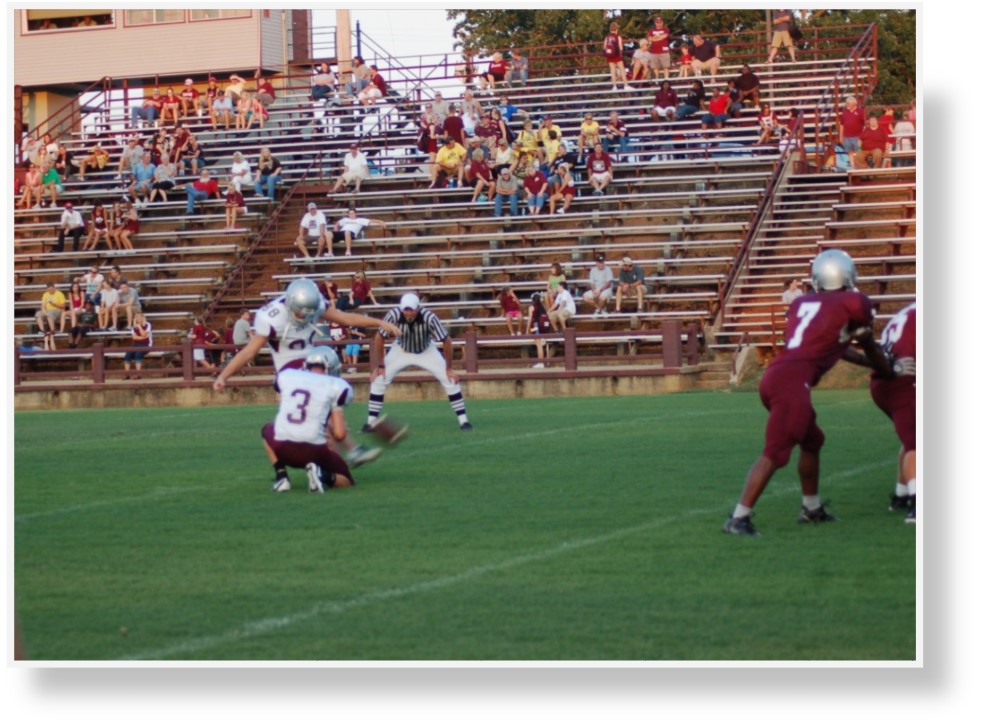
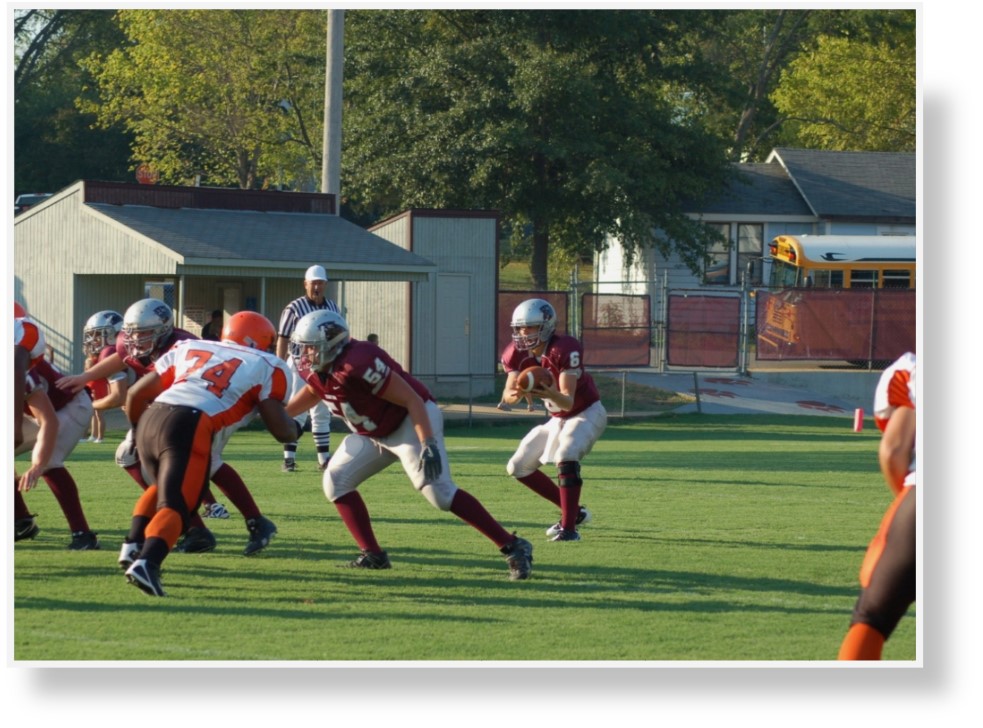
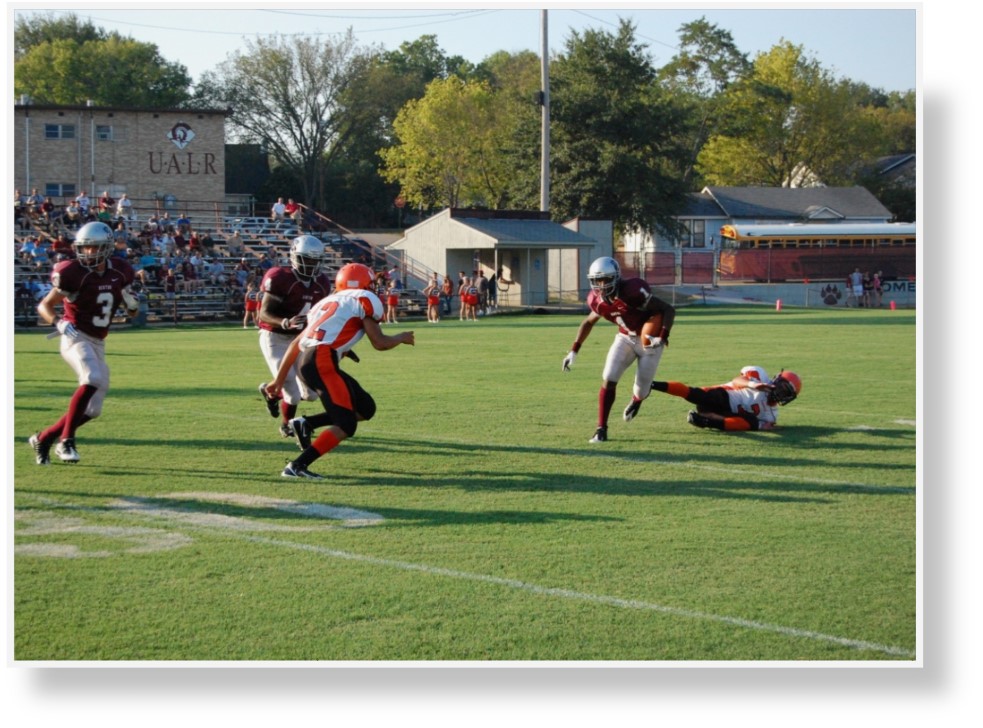
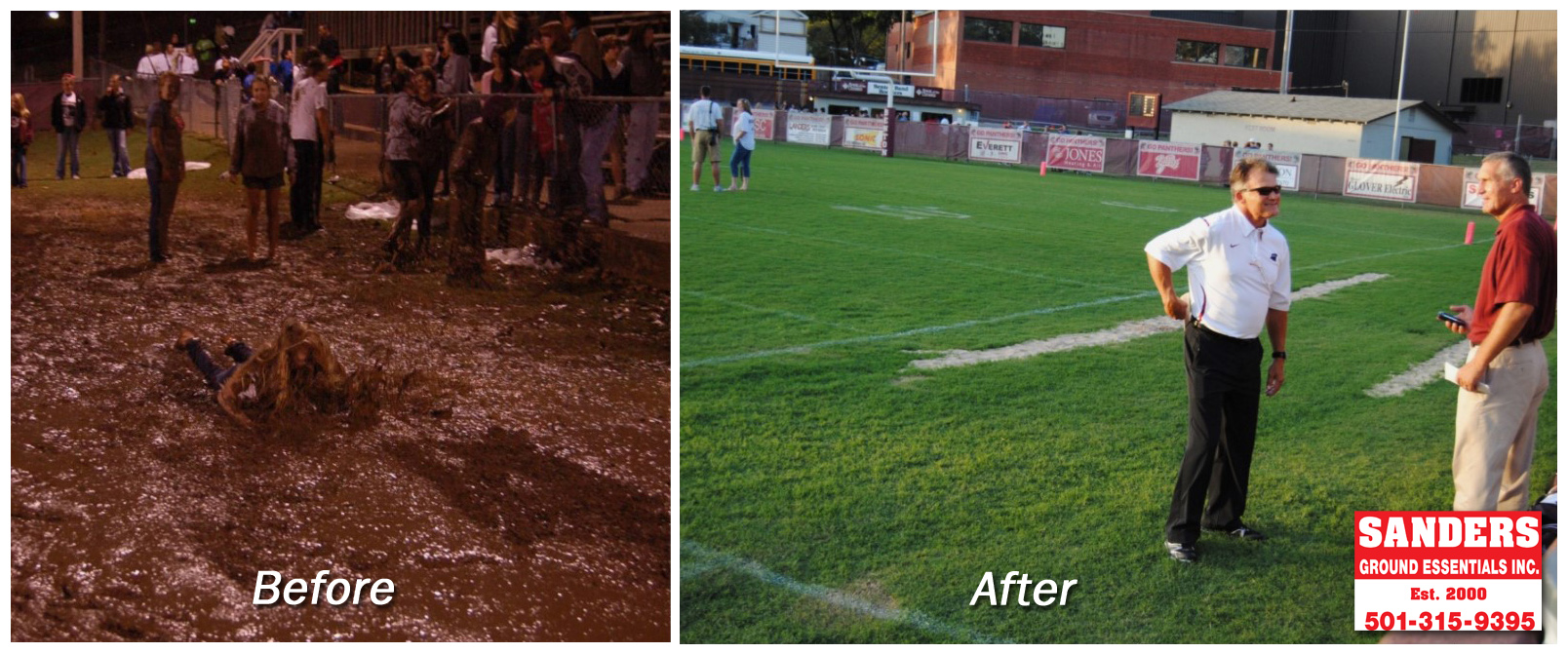
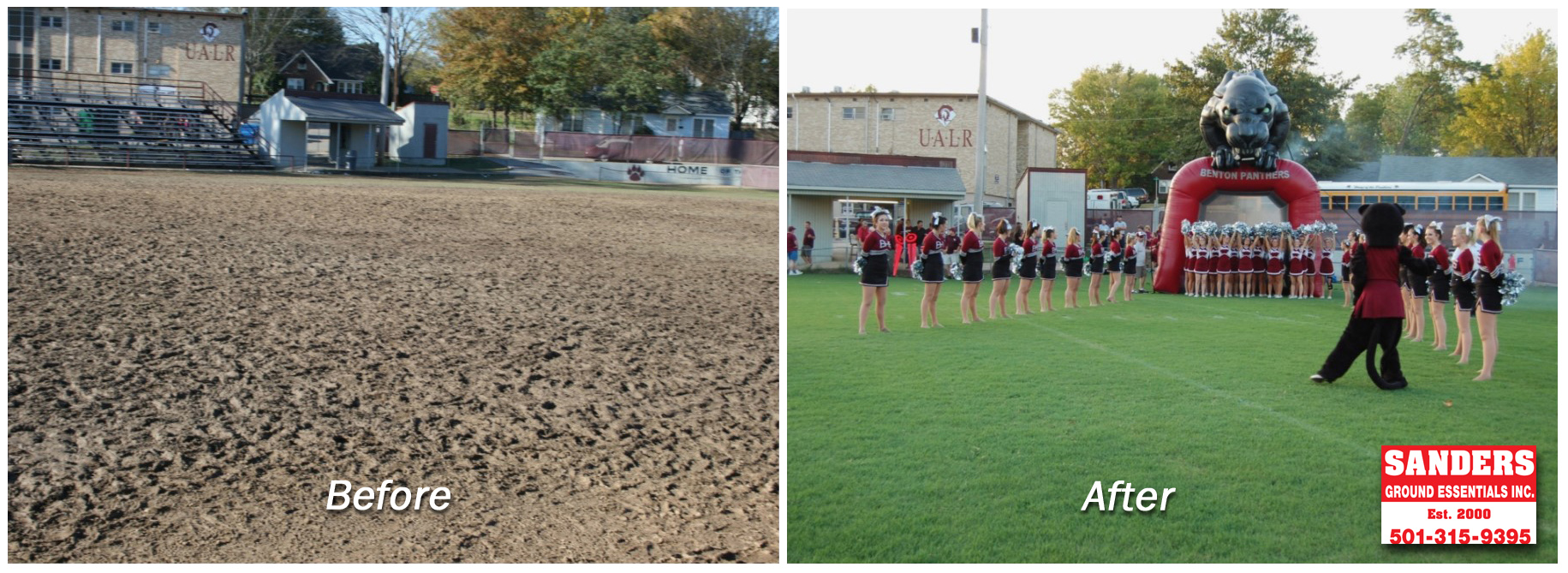
So you've just seen how we've taken a mud pit that had no life and revived it into a beautiful sports field. Imagine what we can do with your yard! Call us today and let
Sanders Ground Essentials take care of your turf needs. Whether it's your home or place of business, or even a large field, we can do it all!
So come on, give us a call, and...
"Let's Get Growing!"

